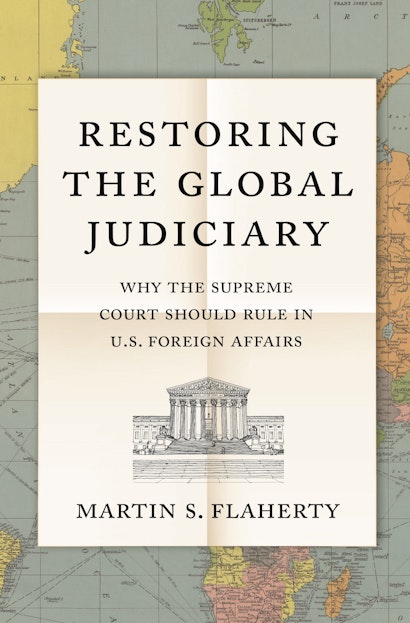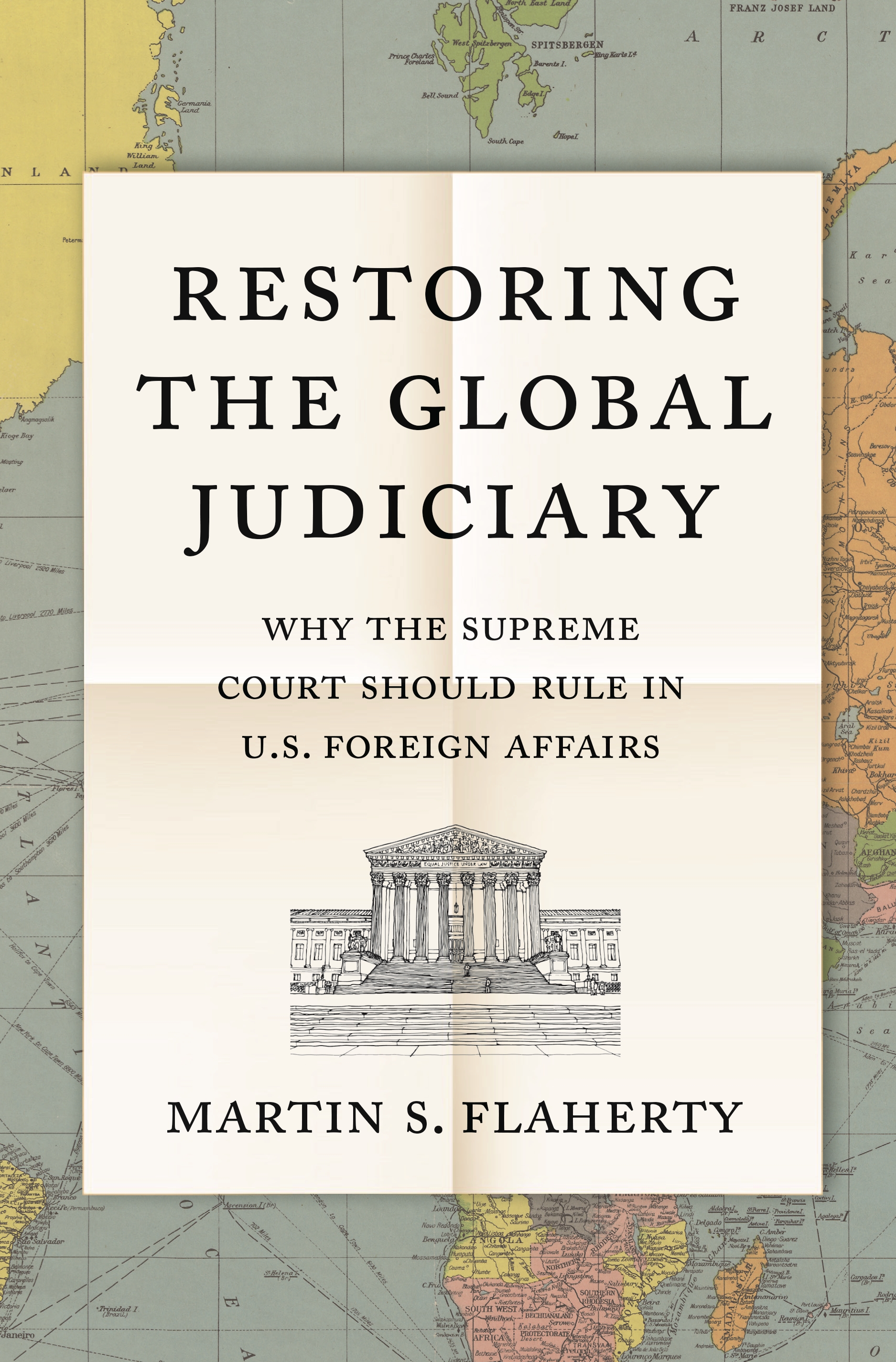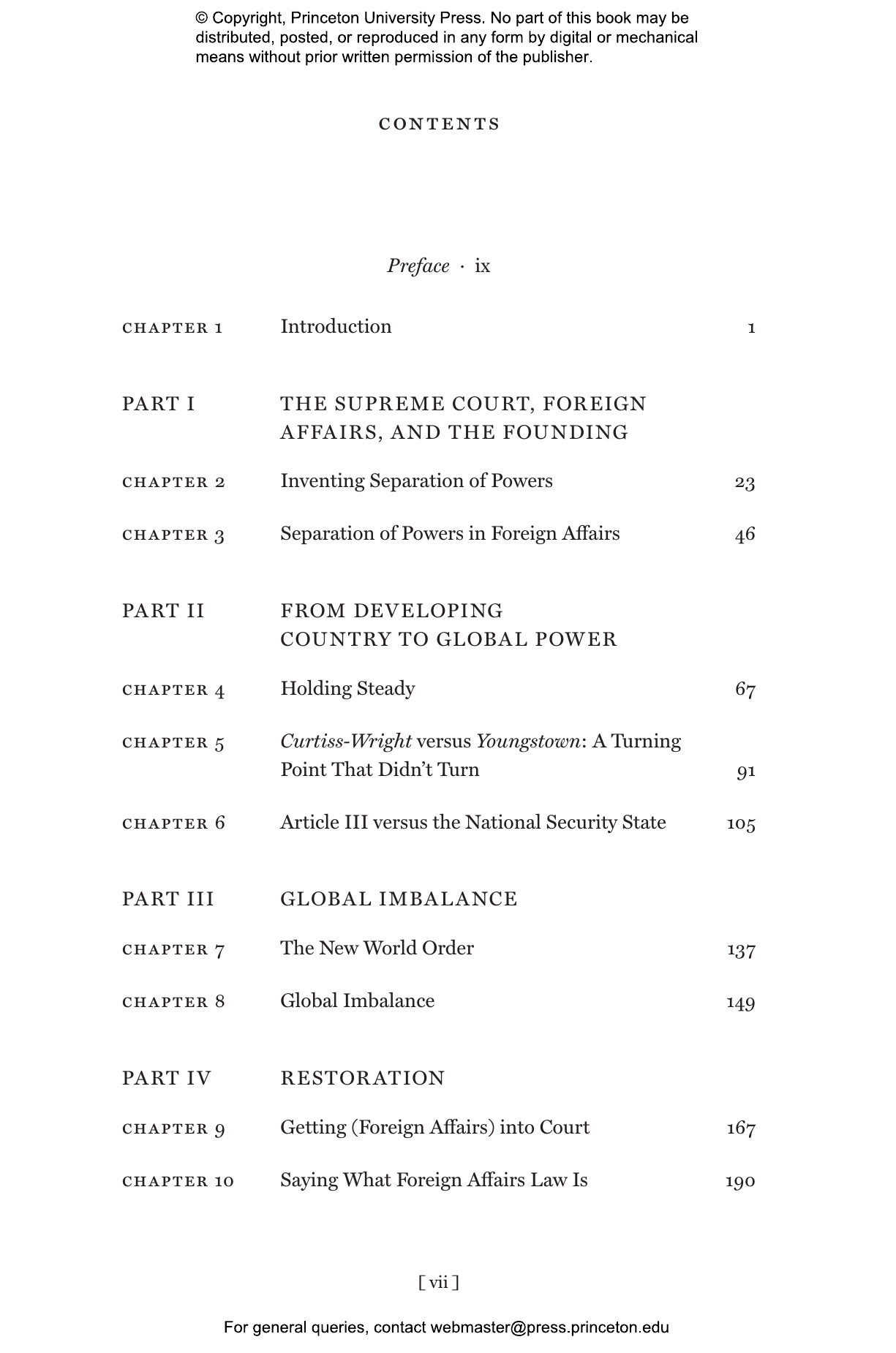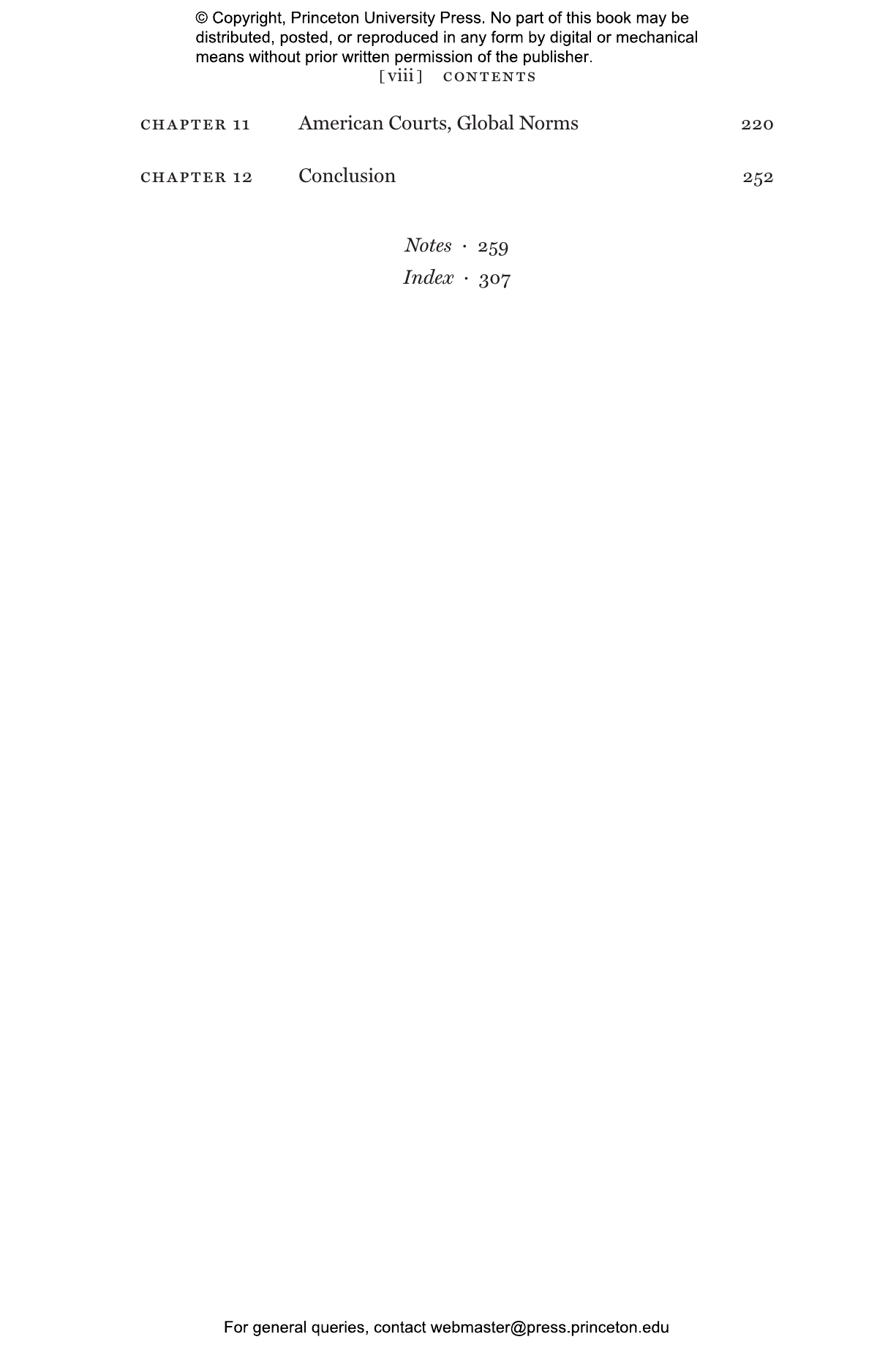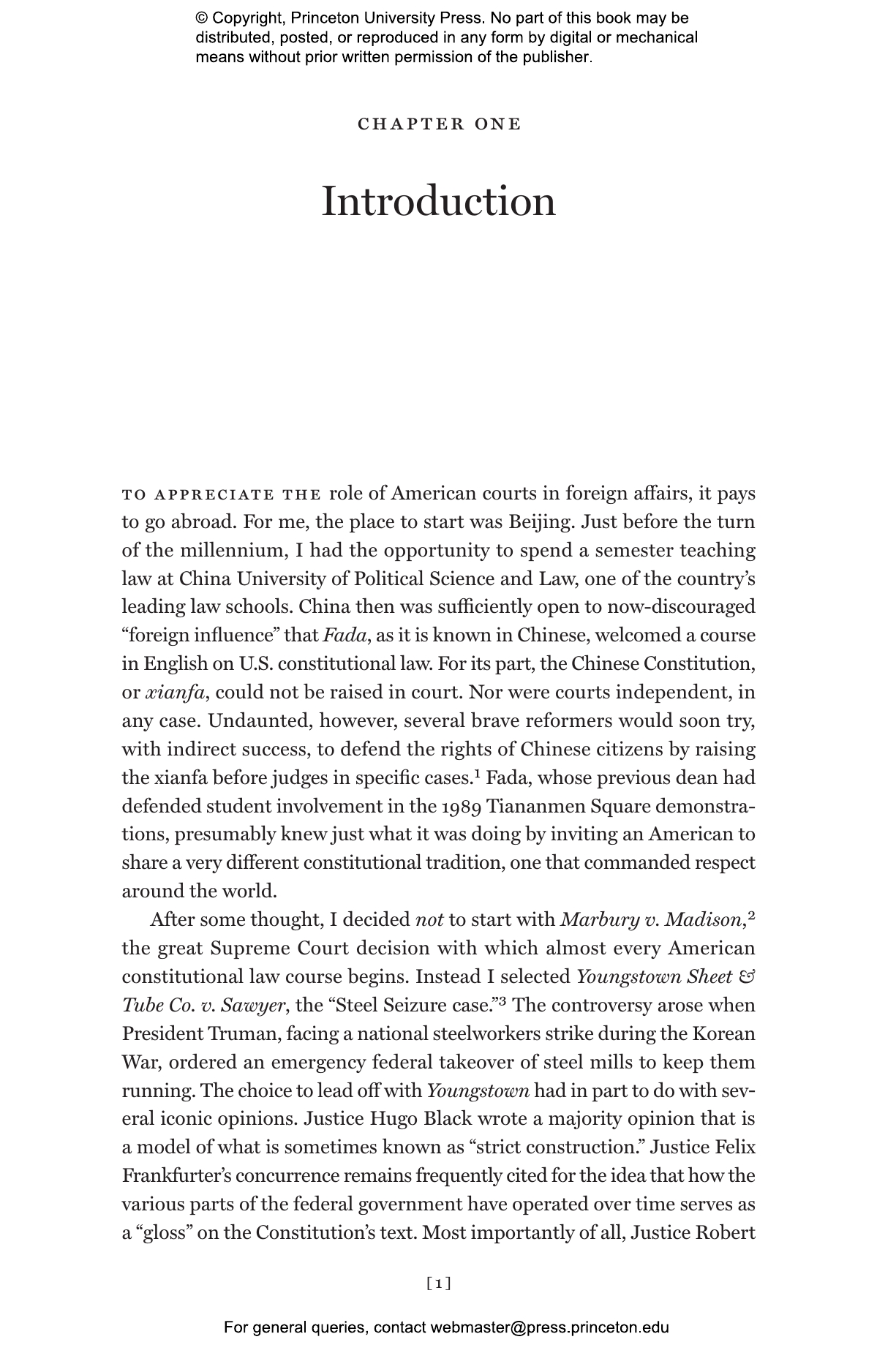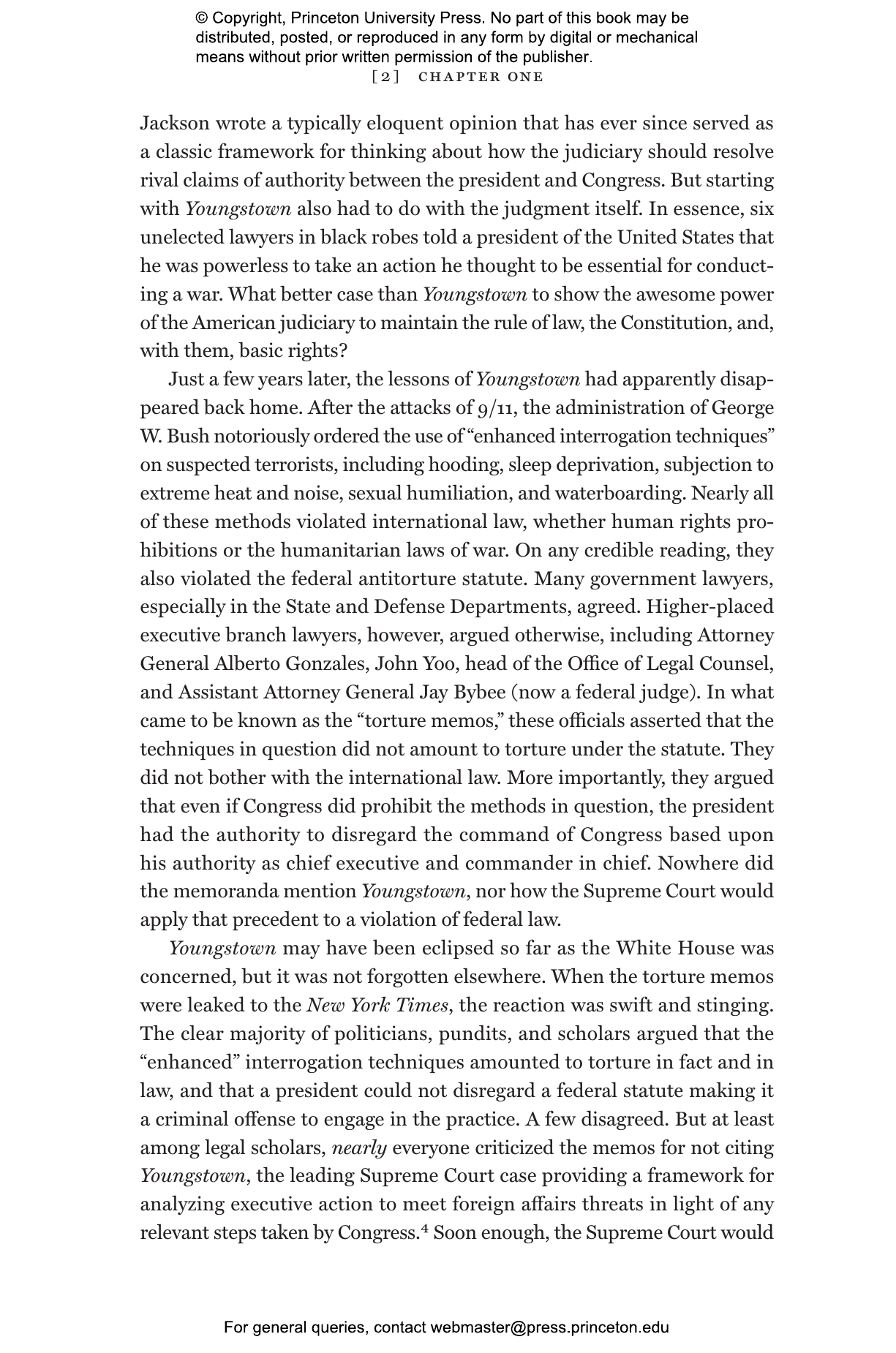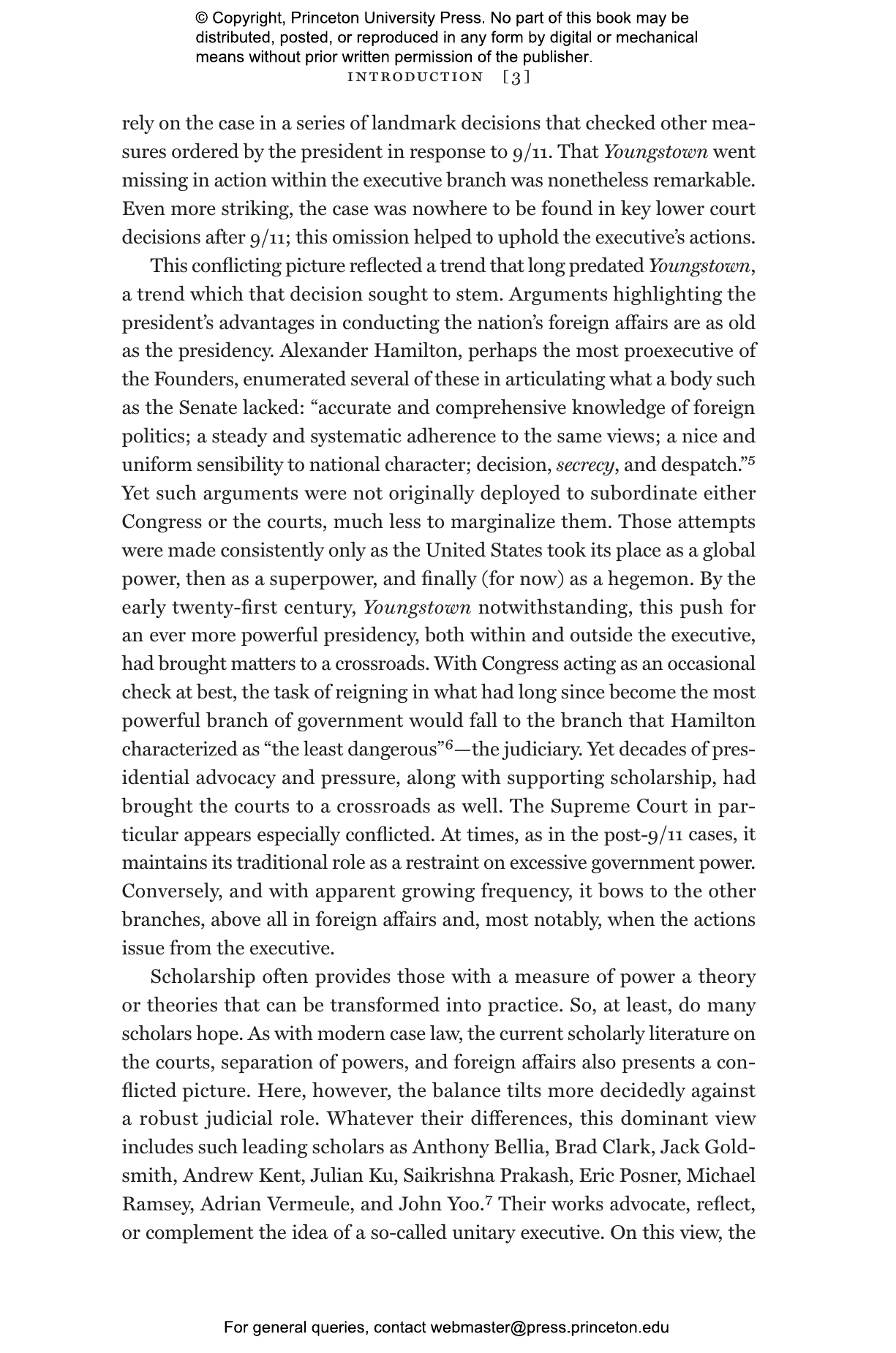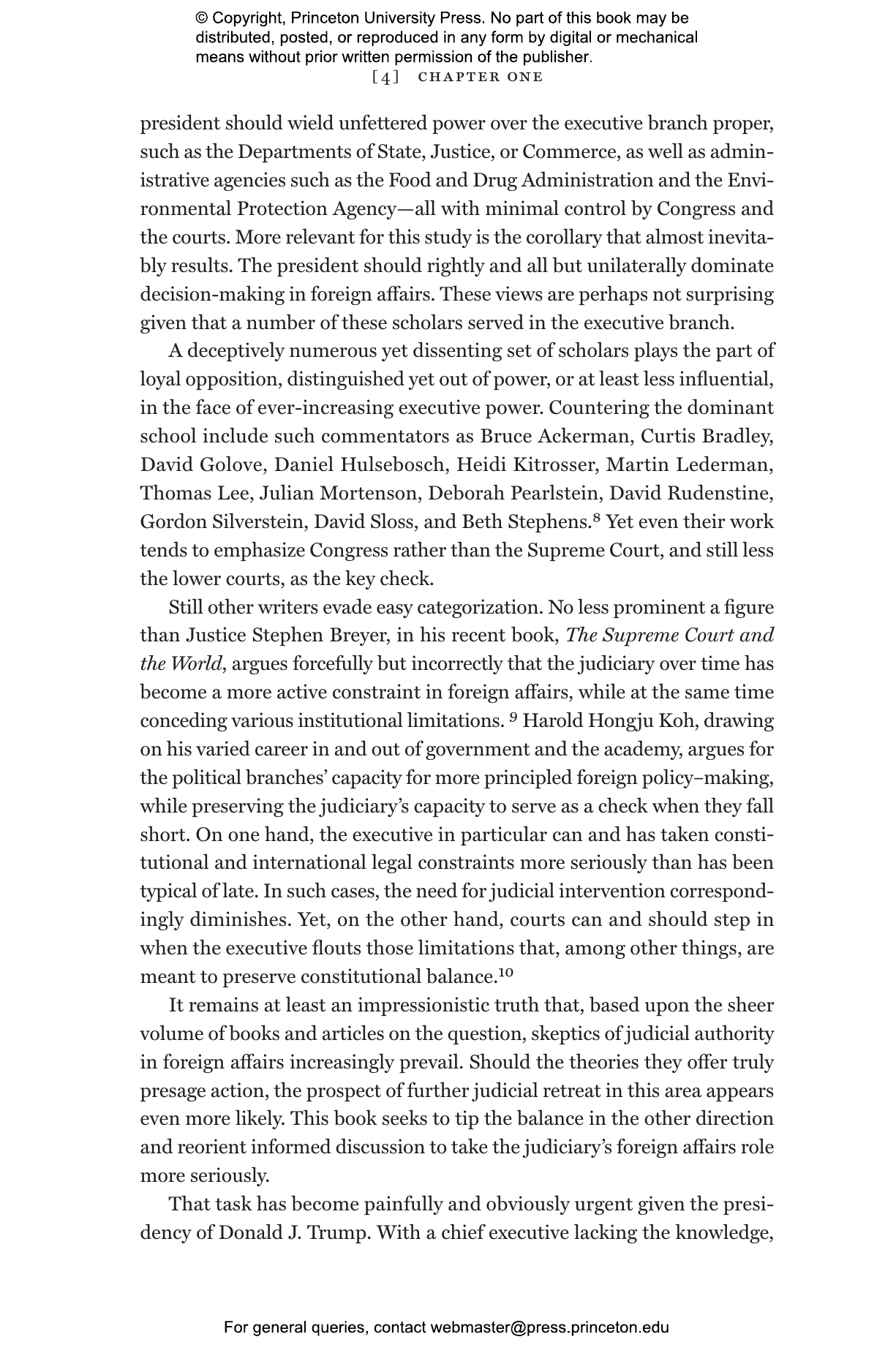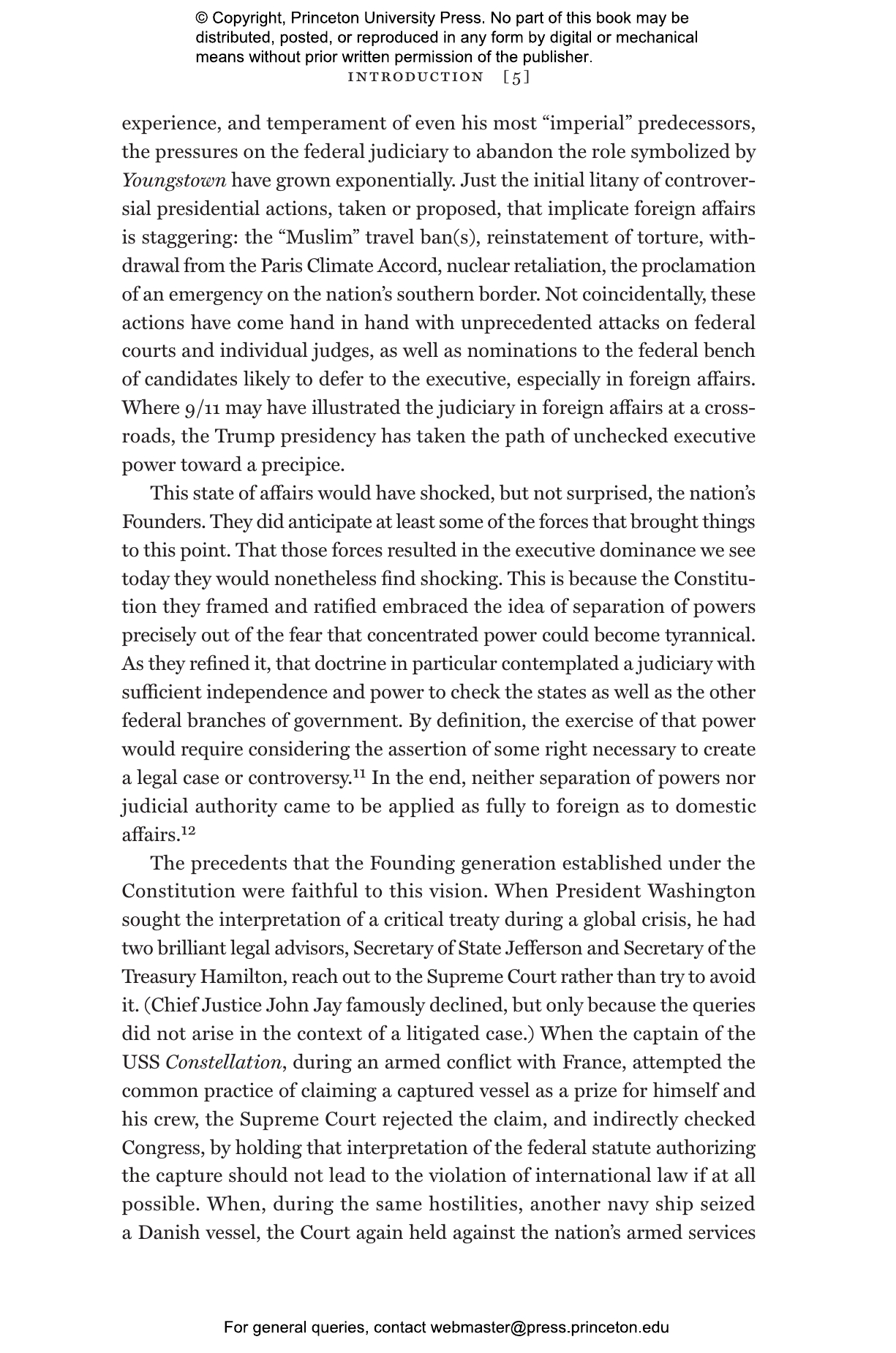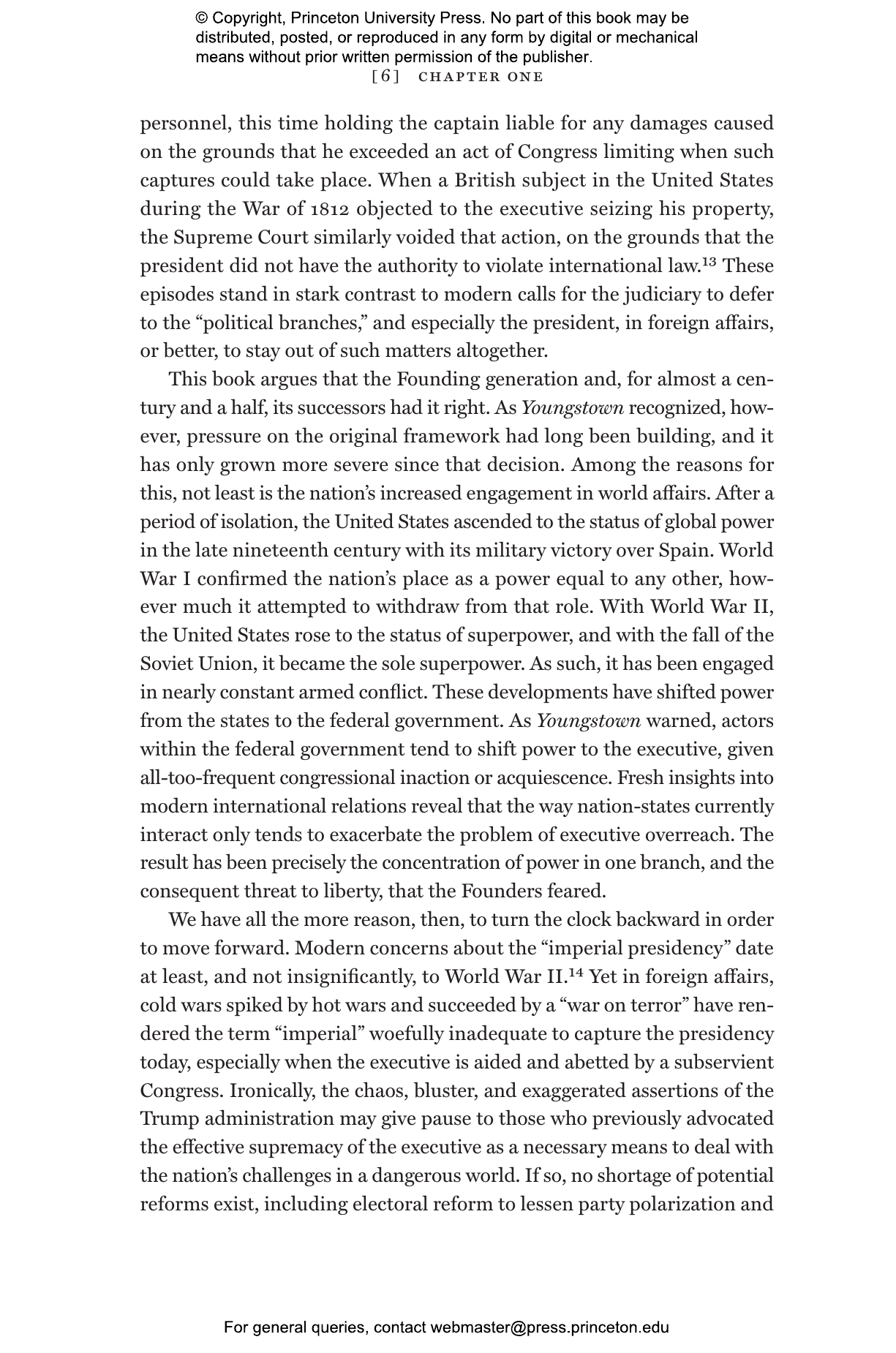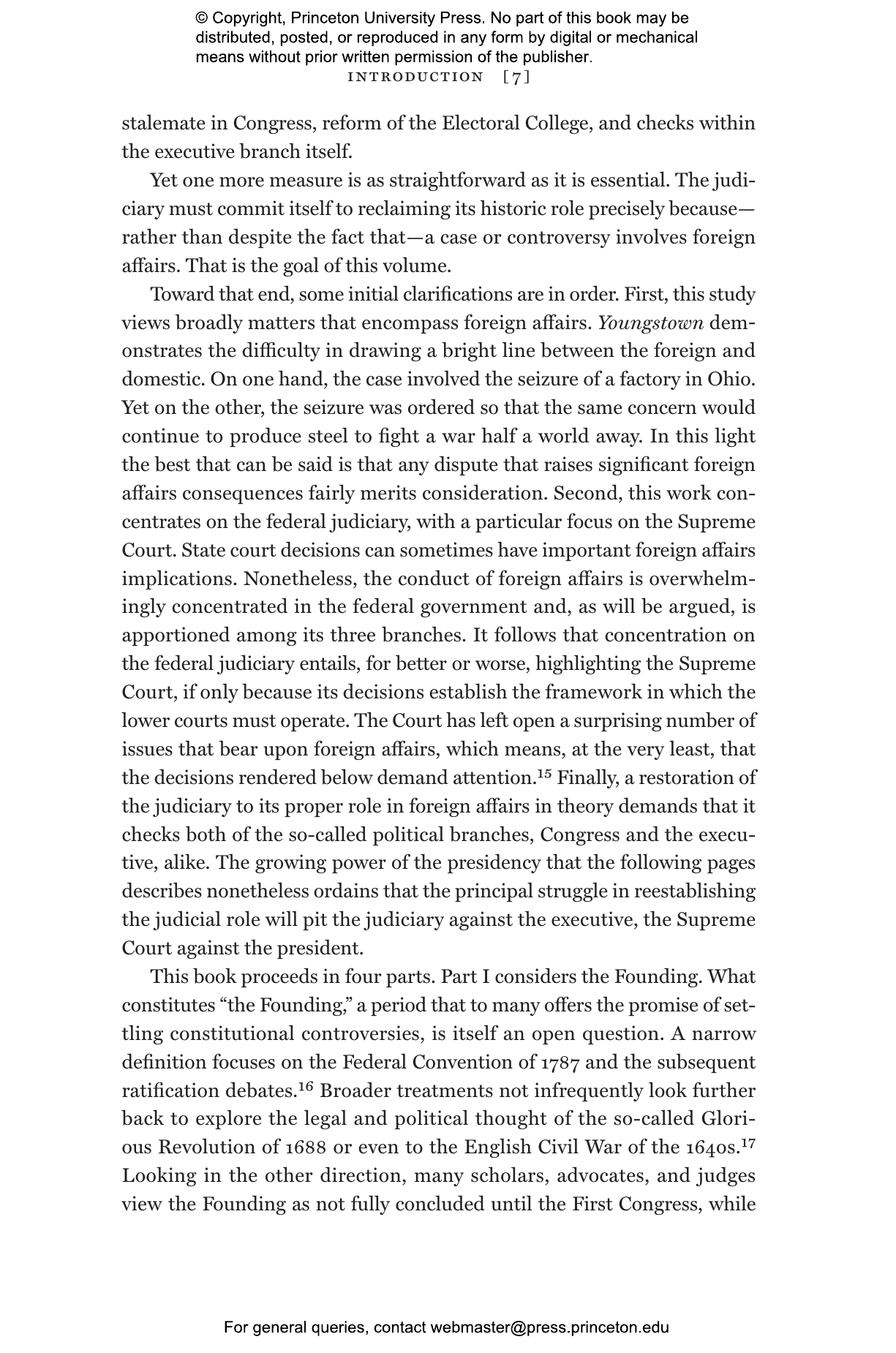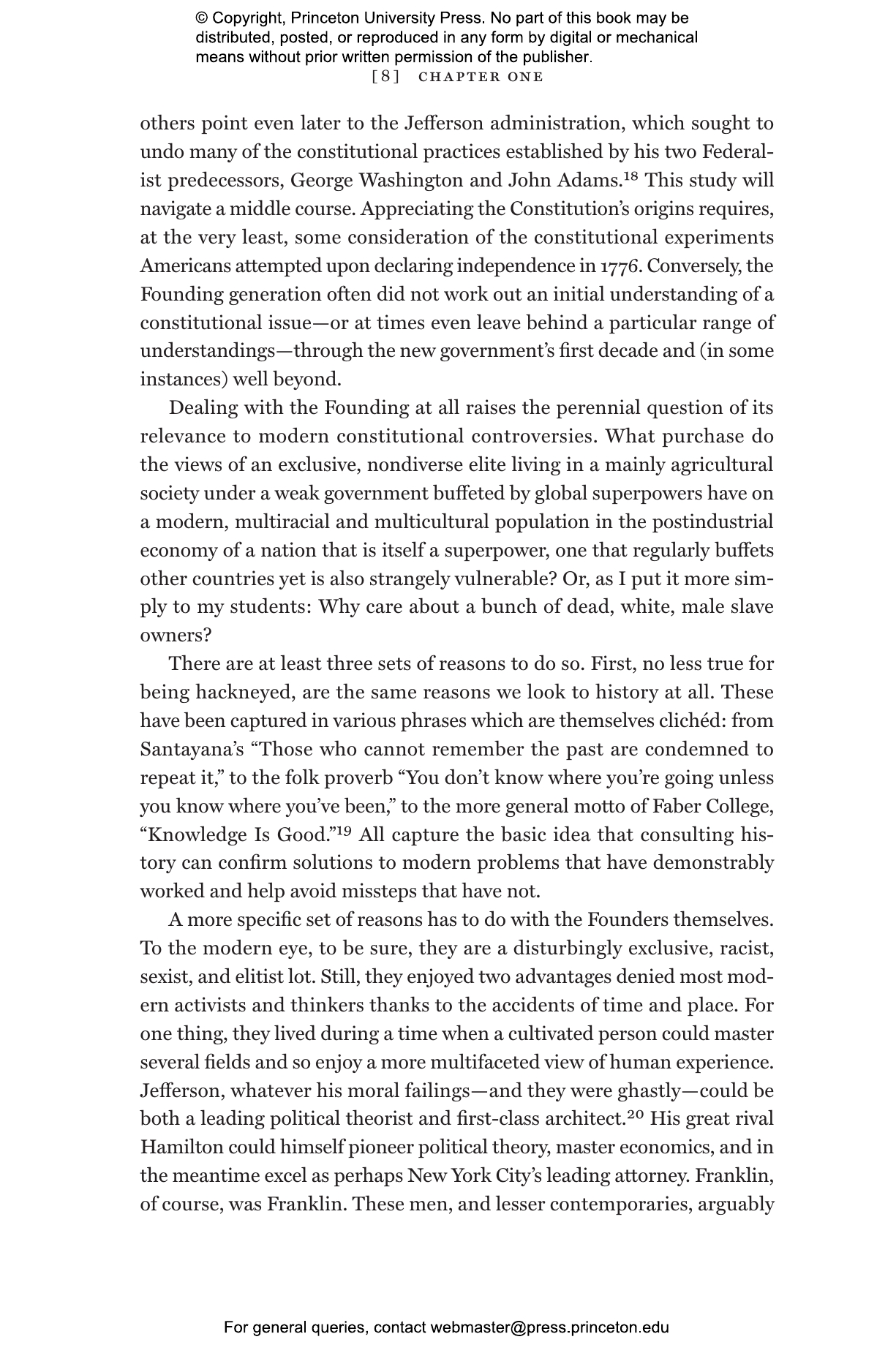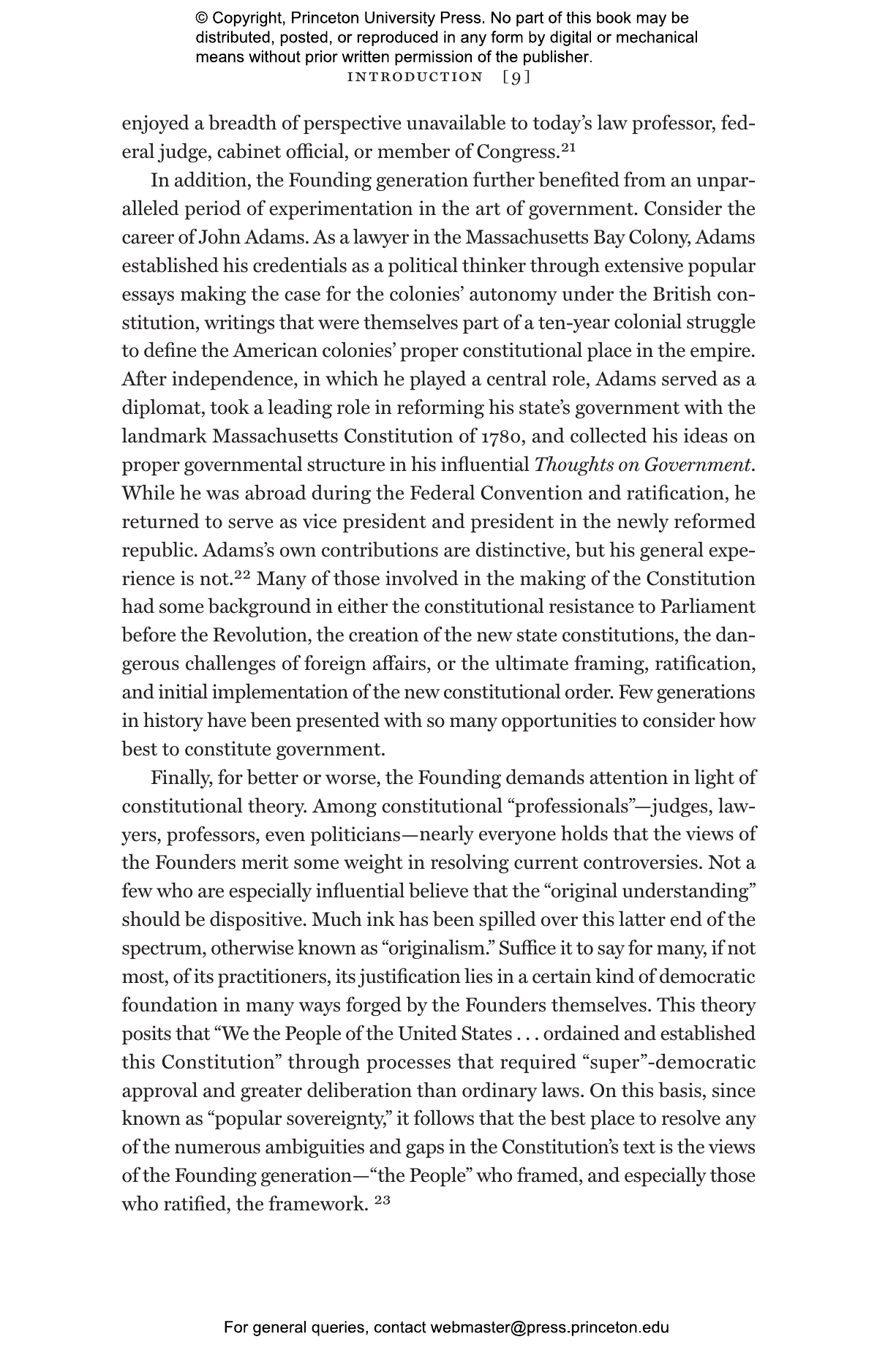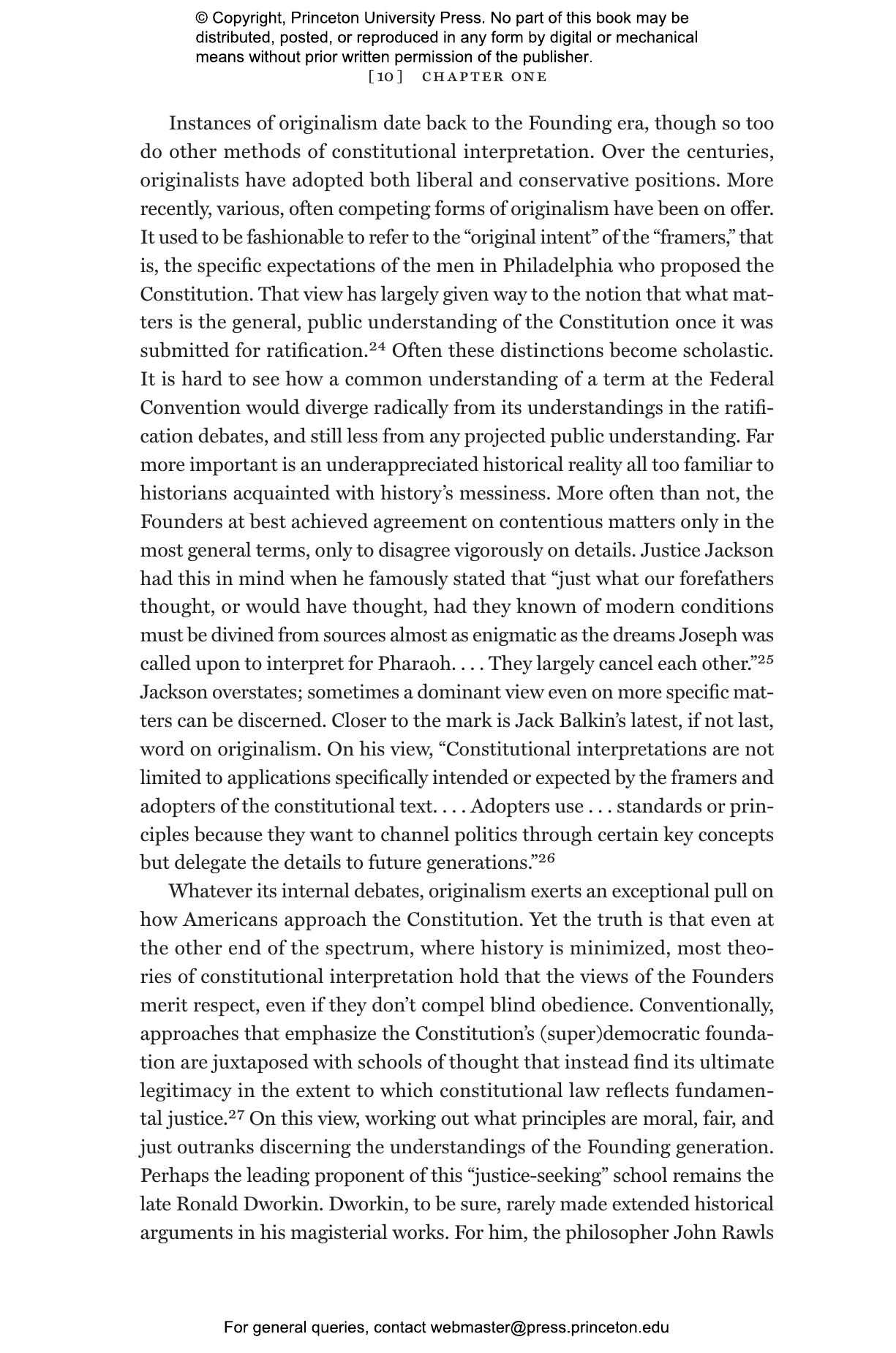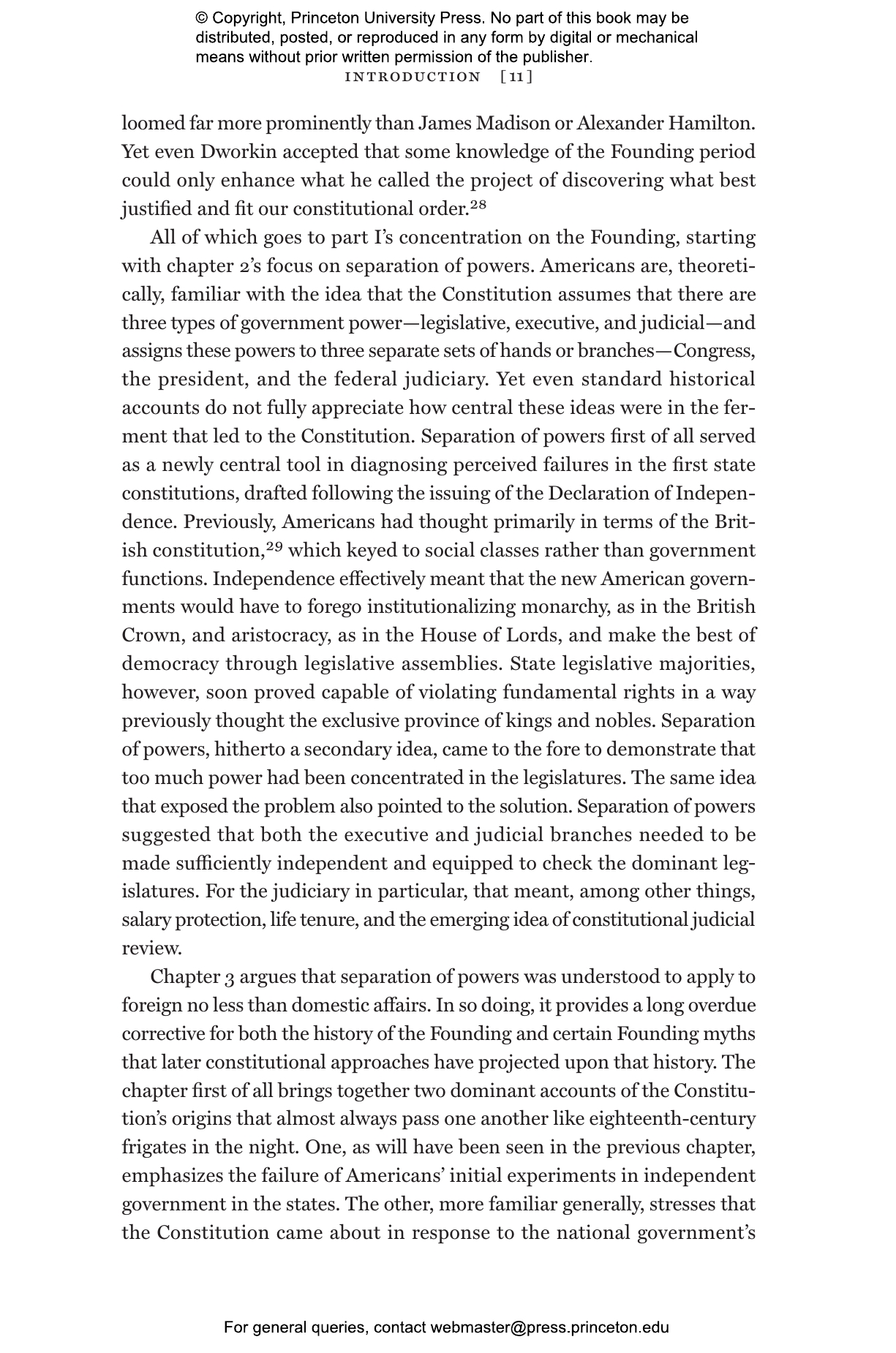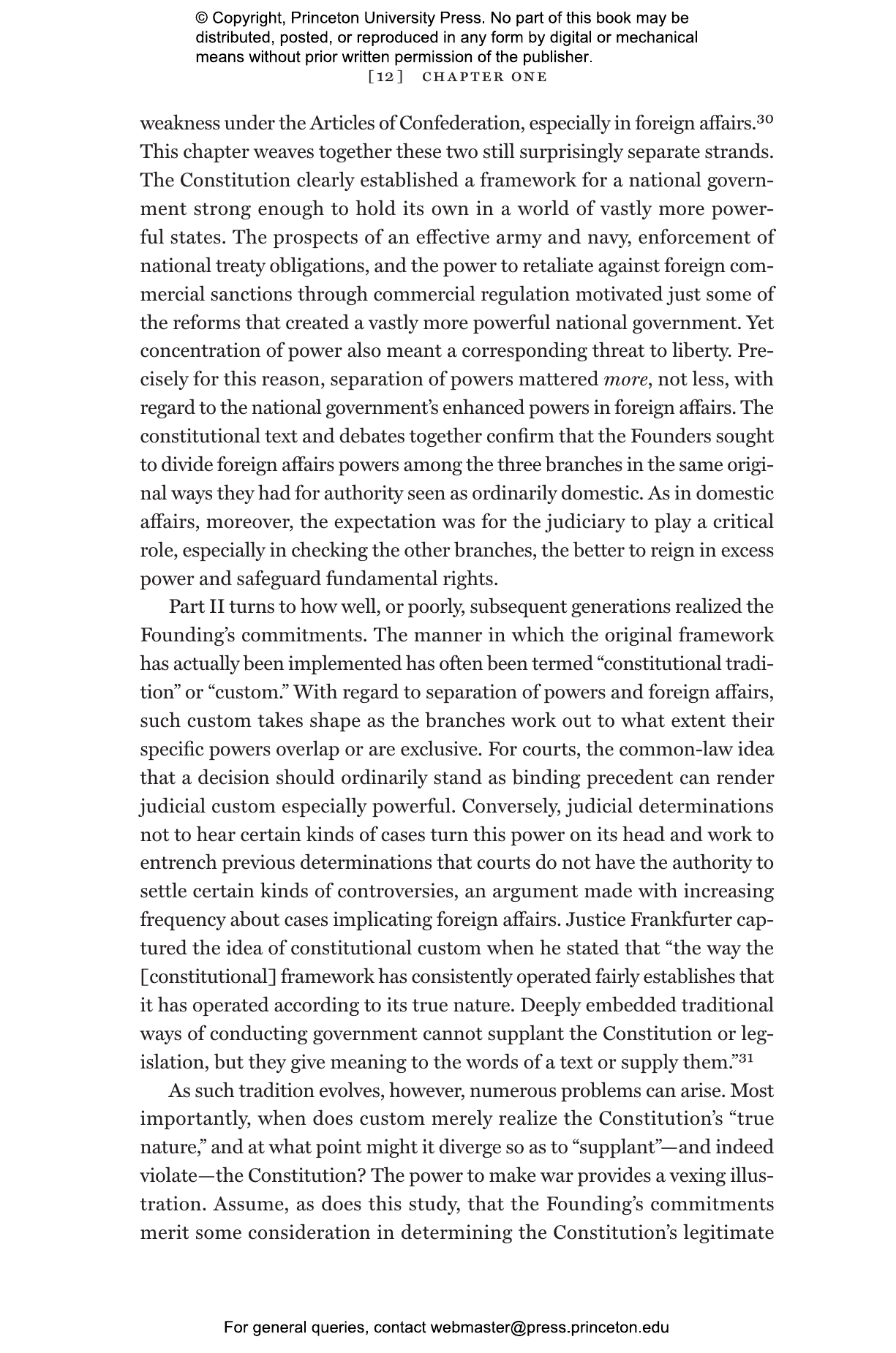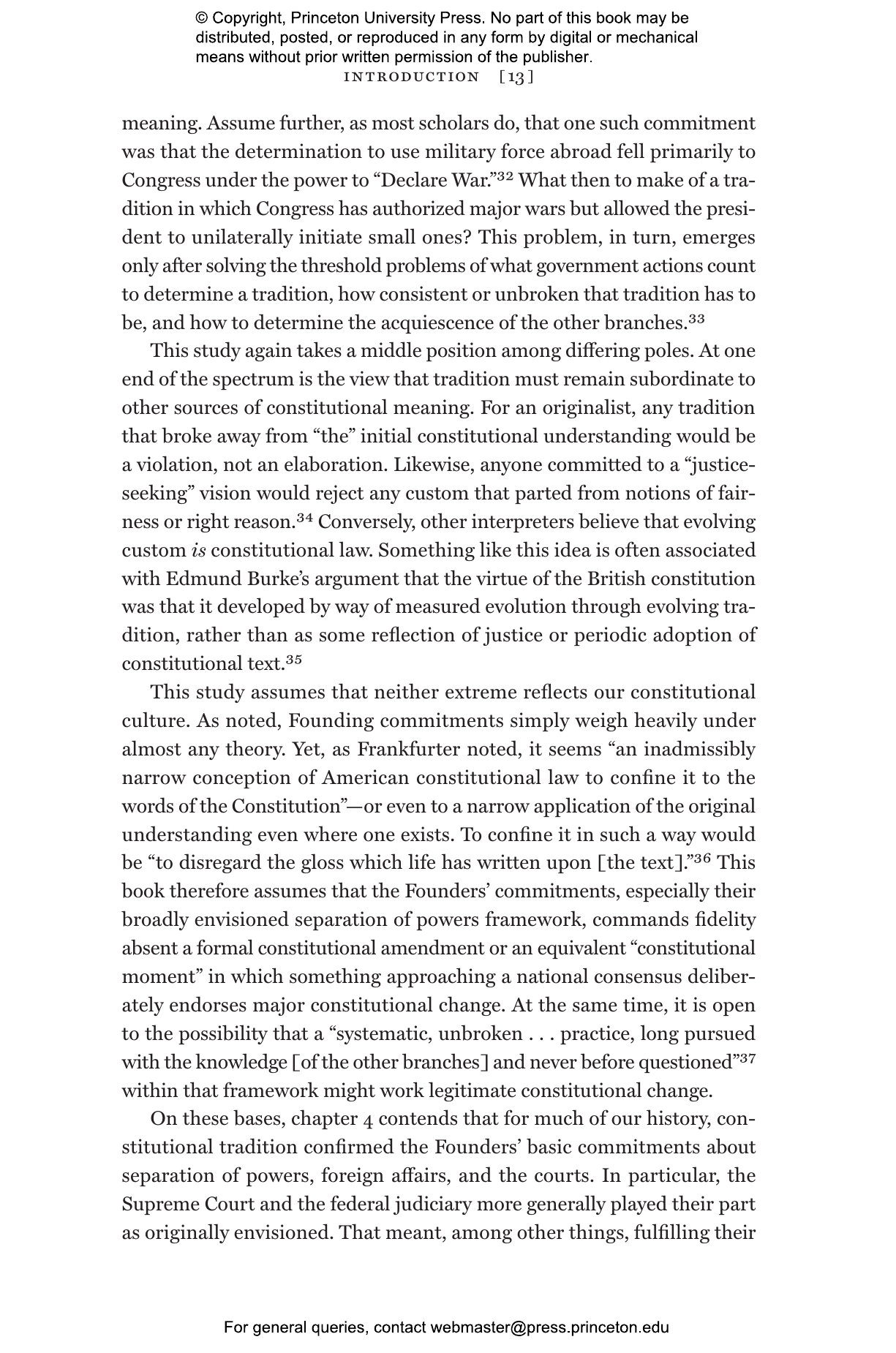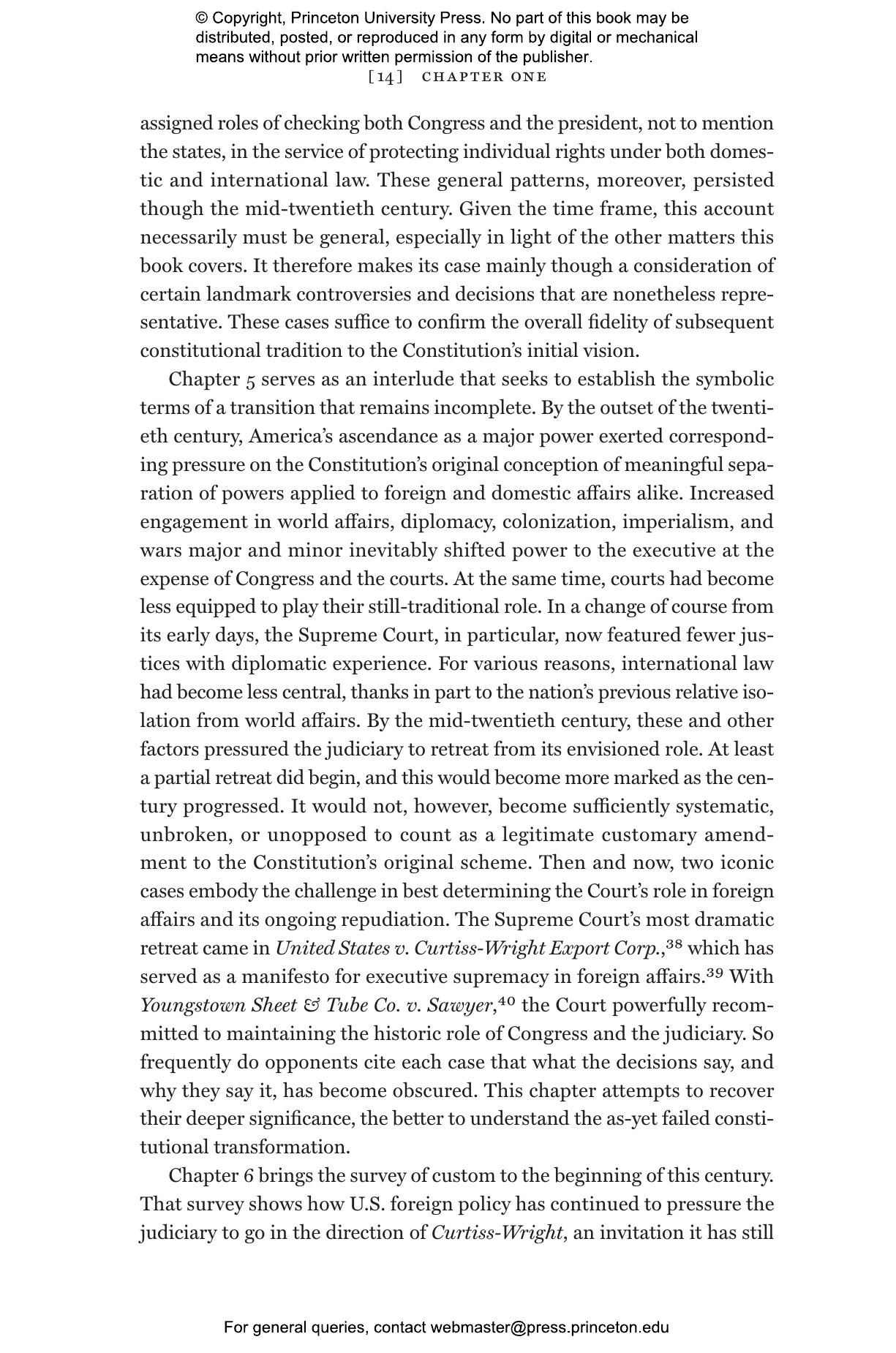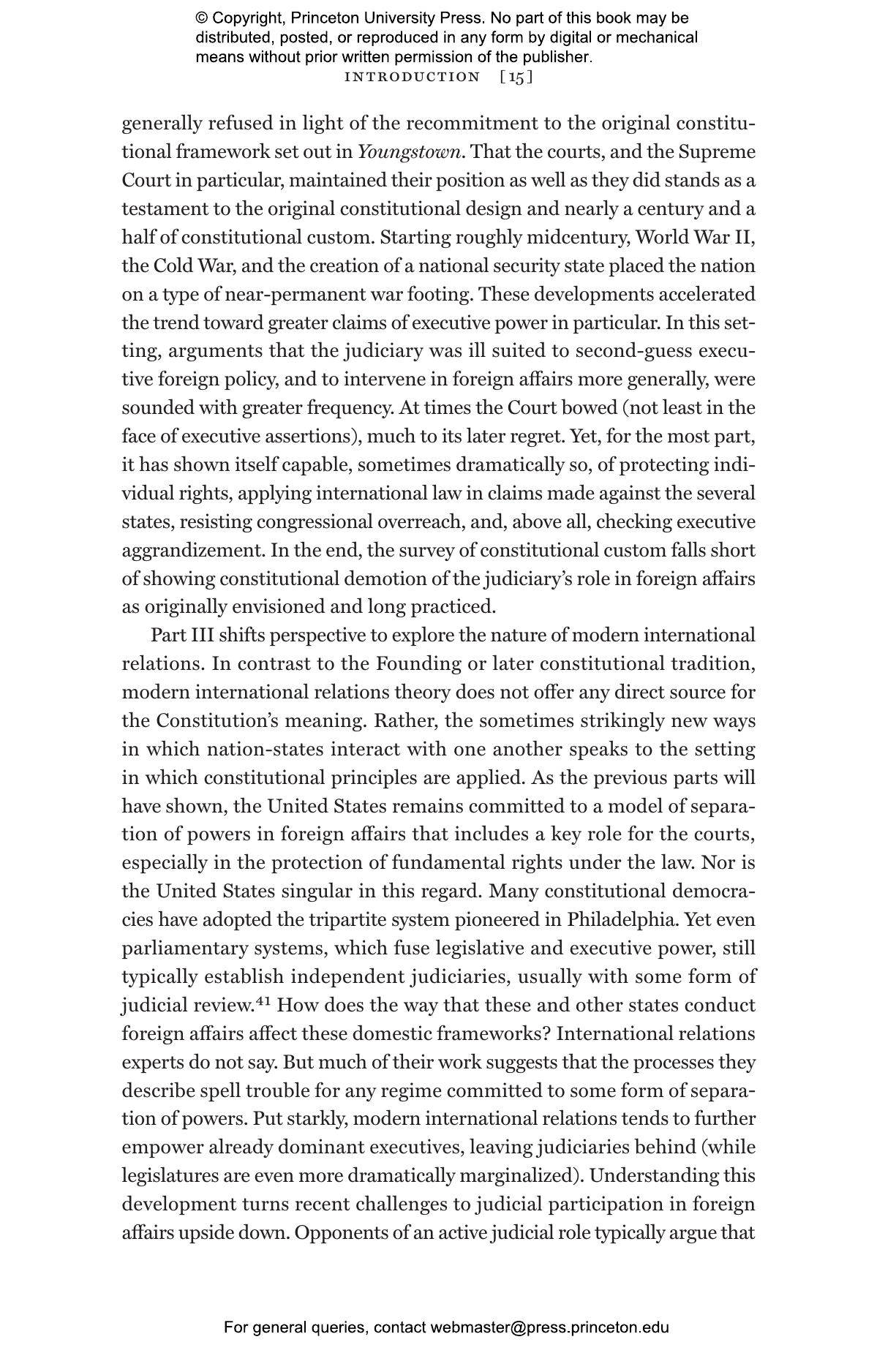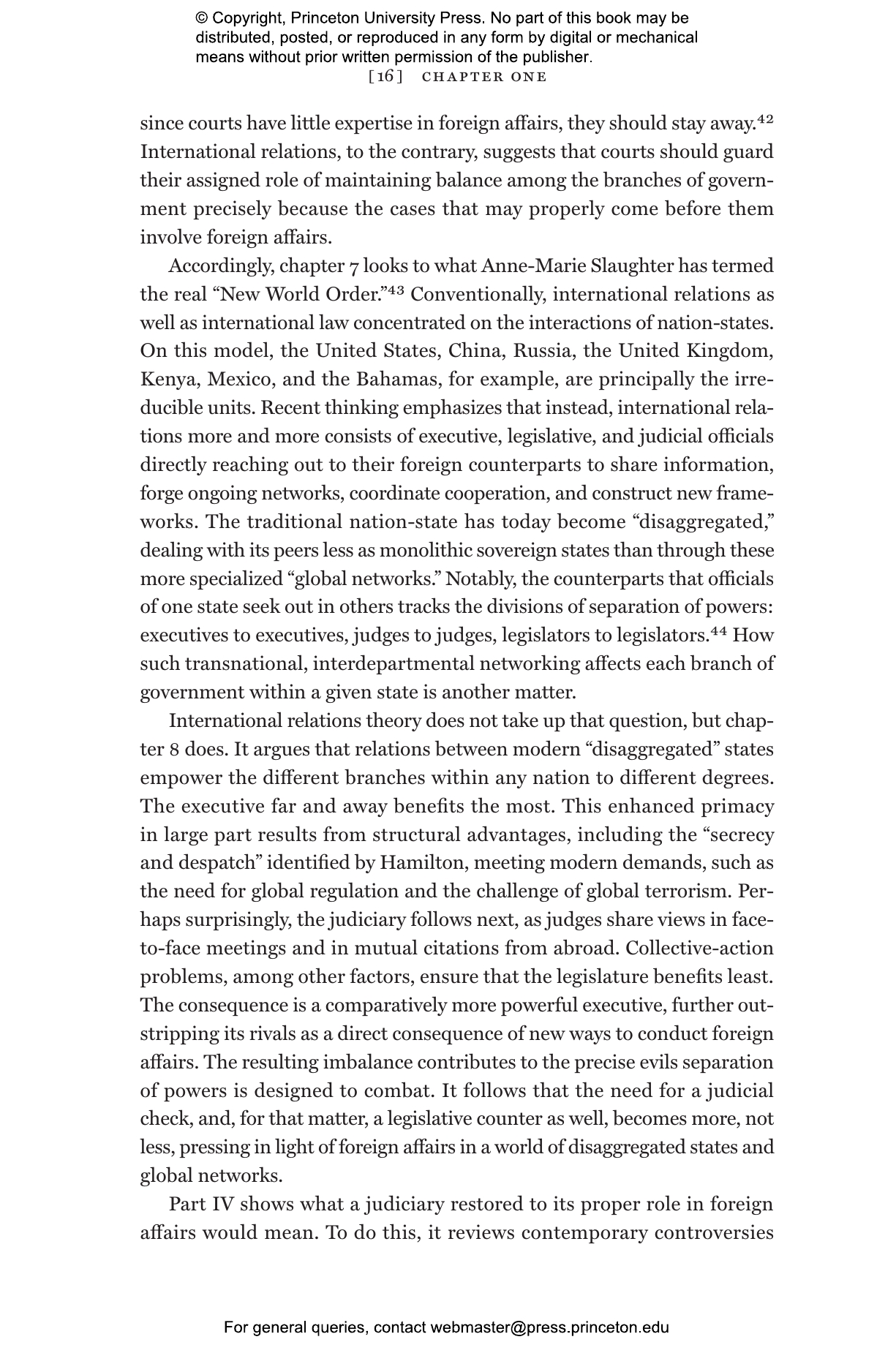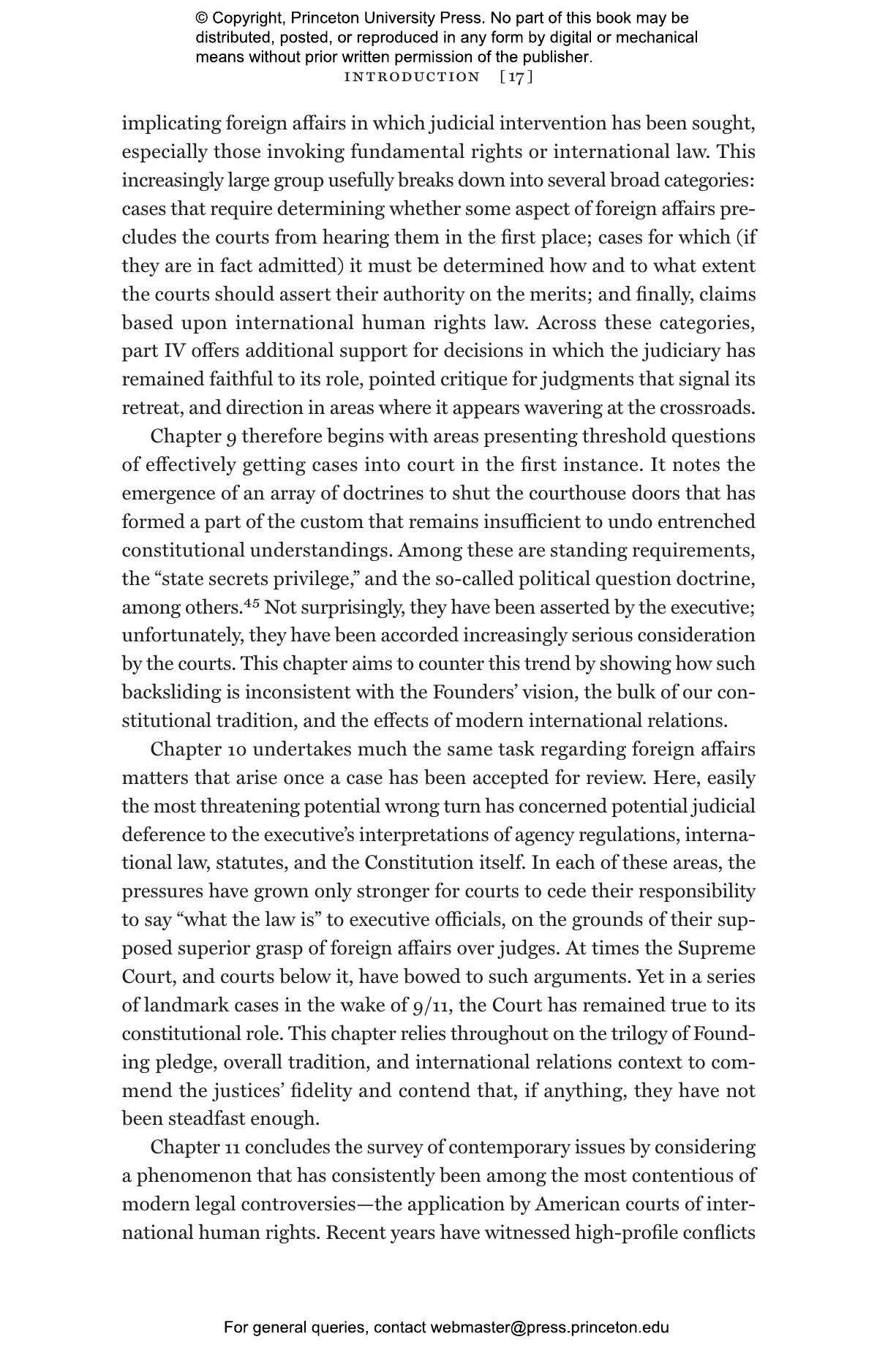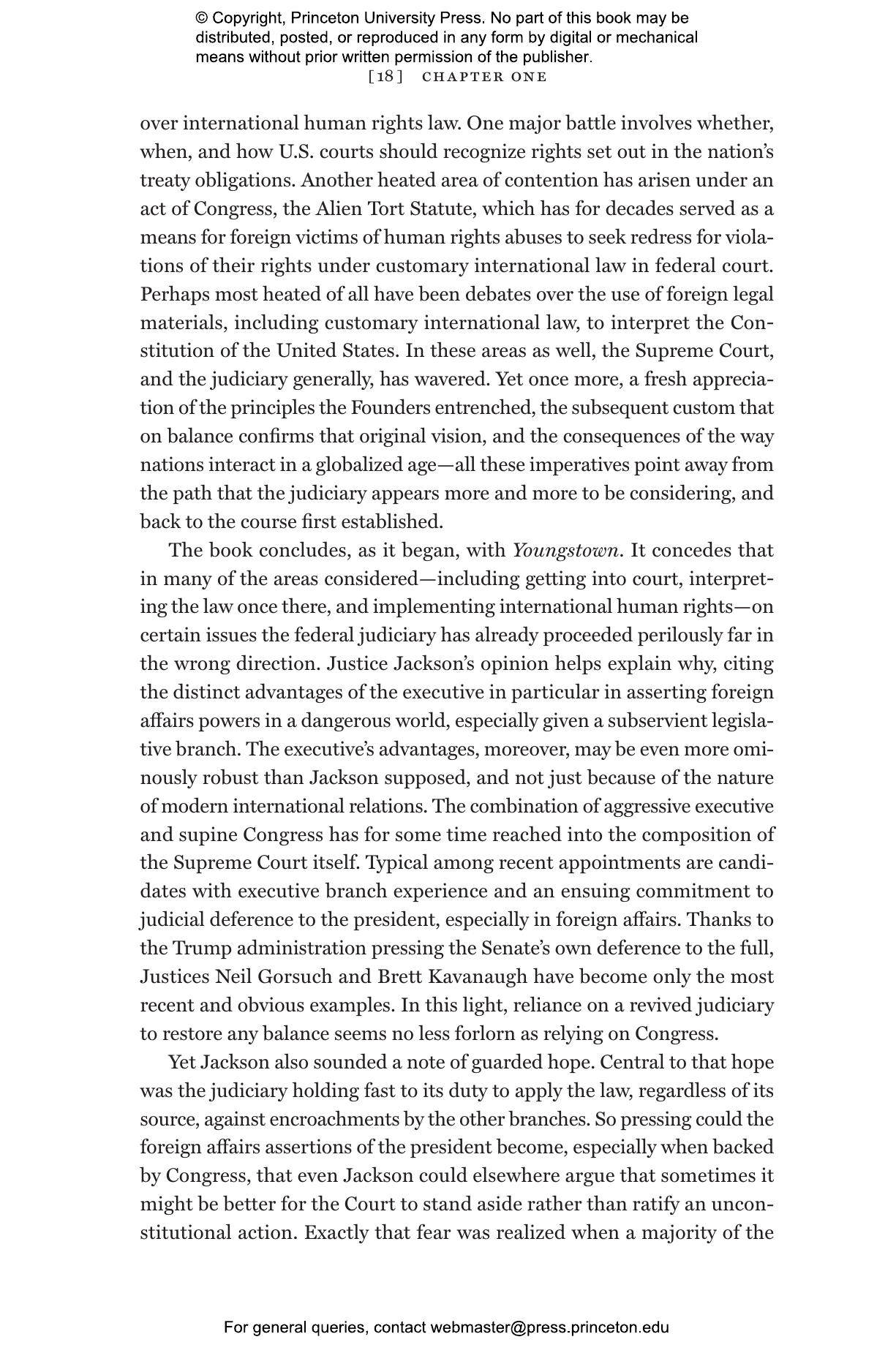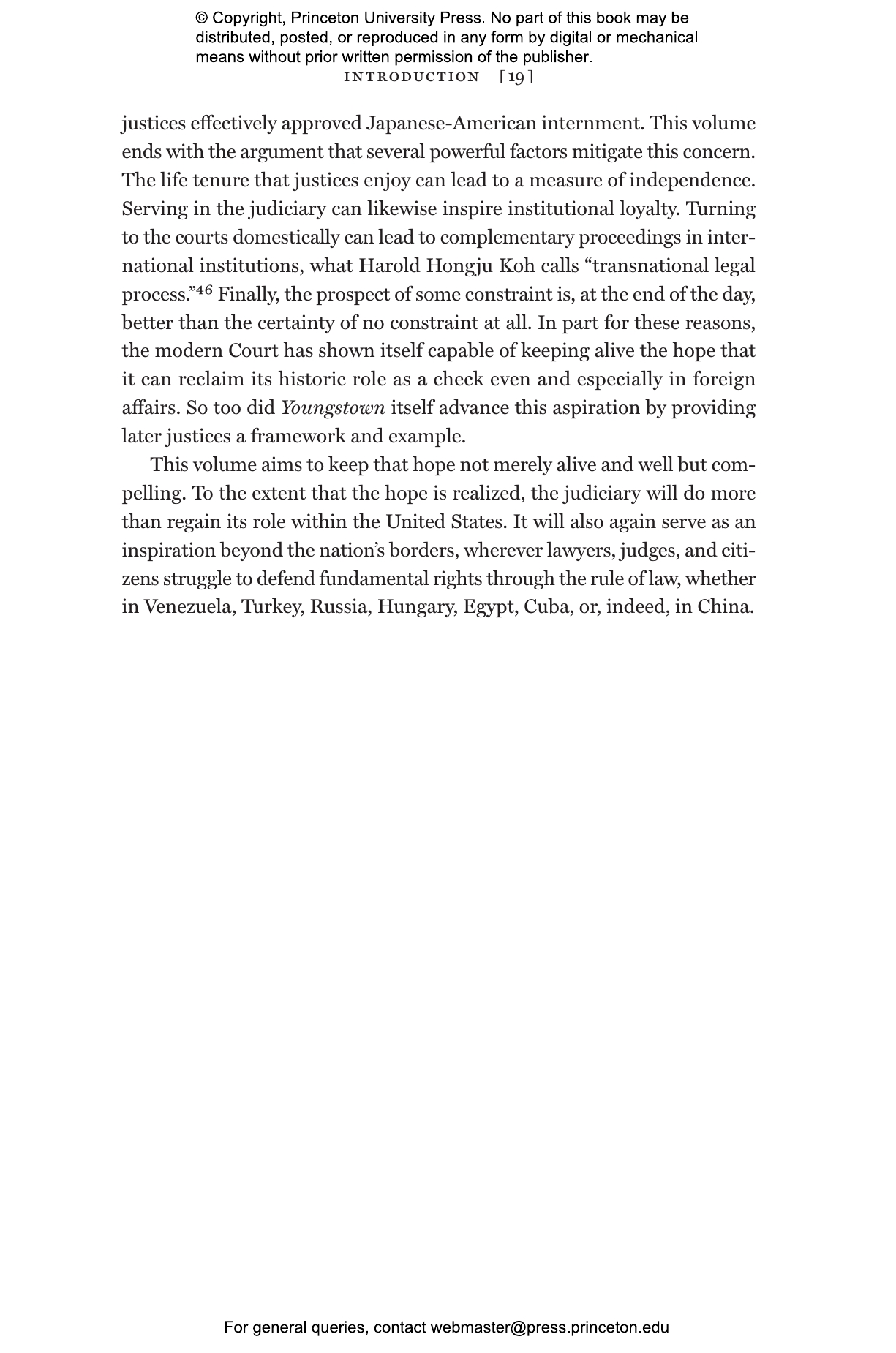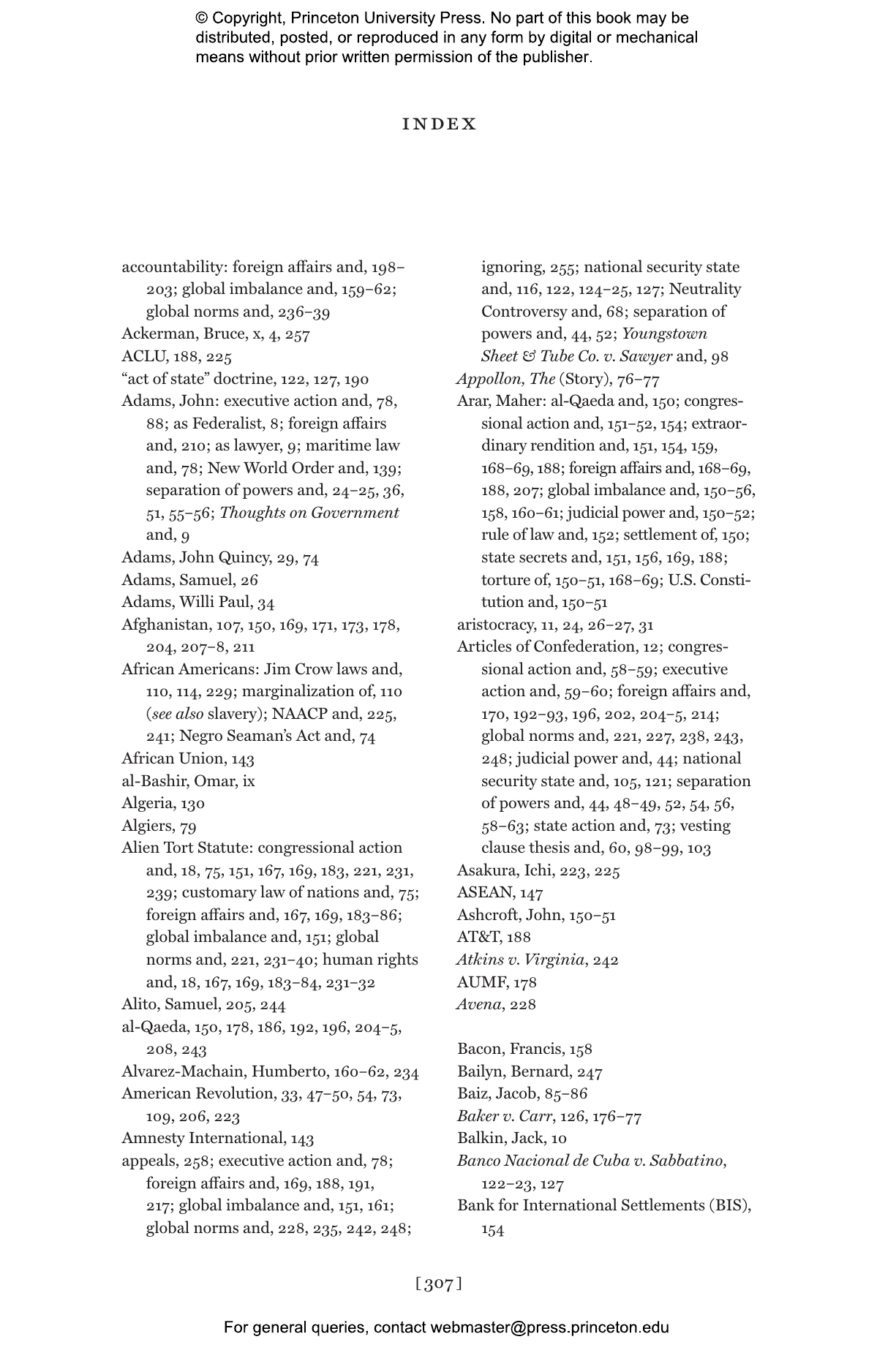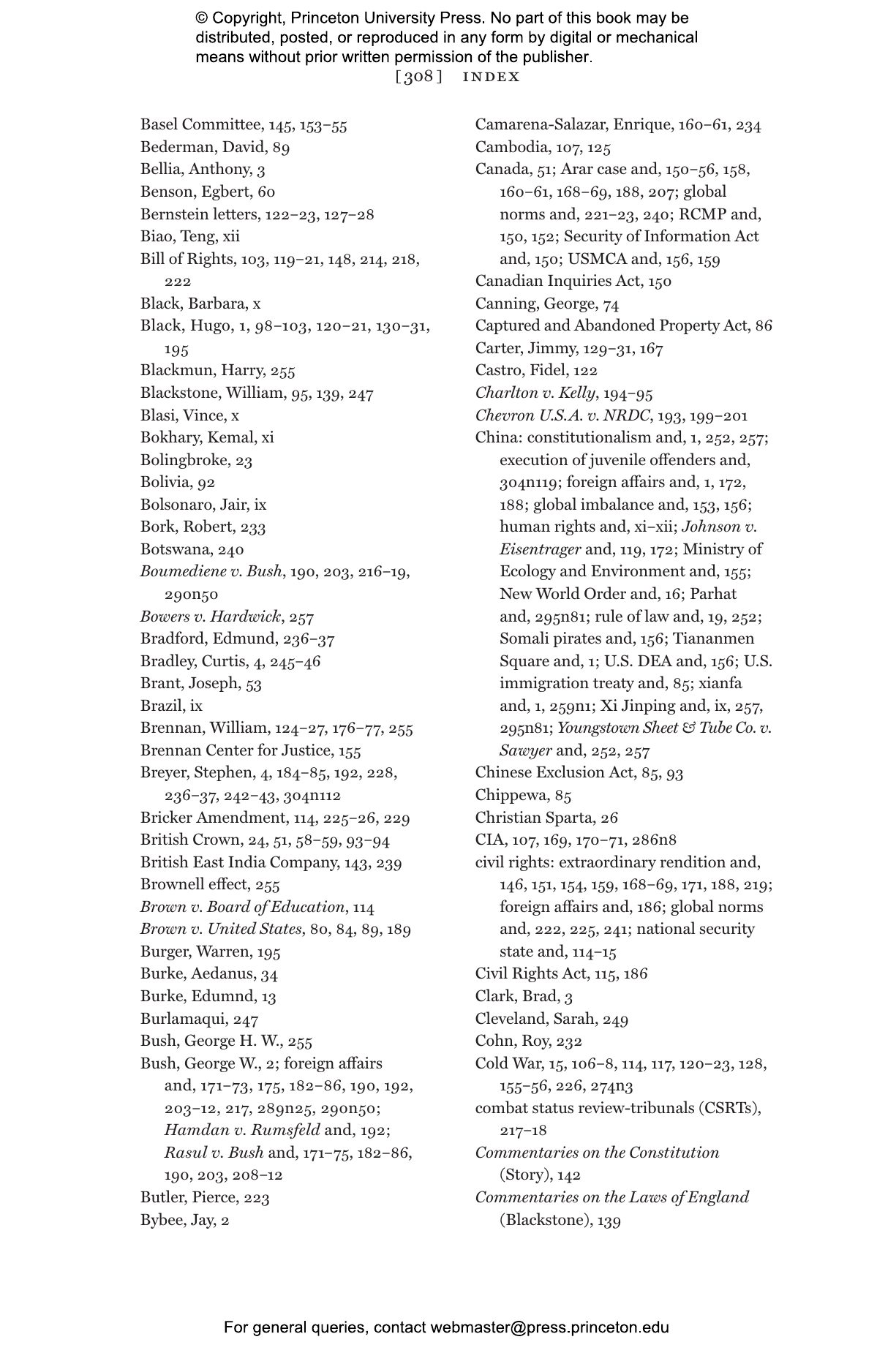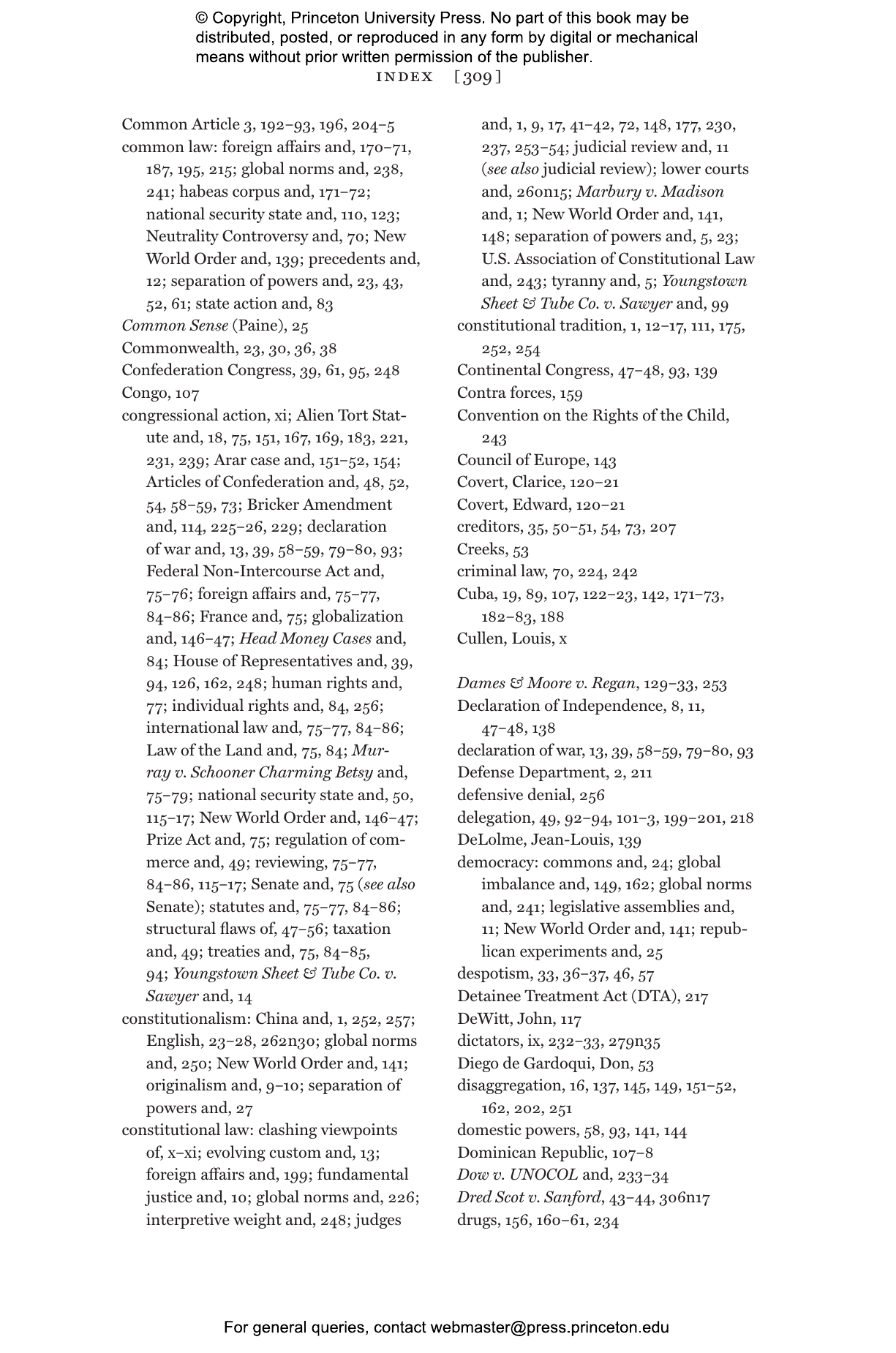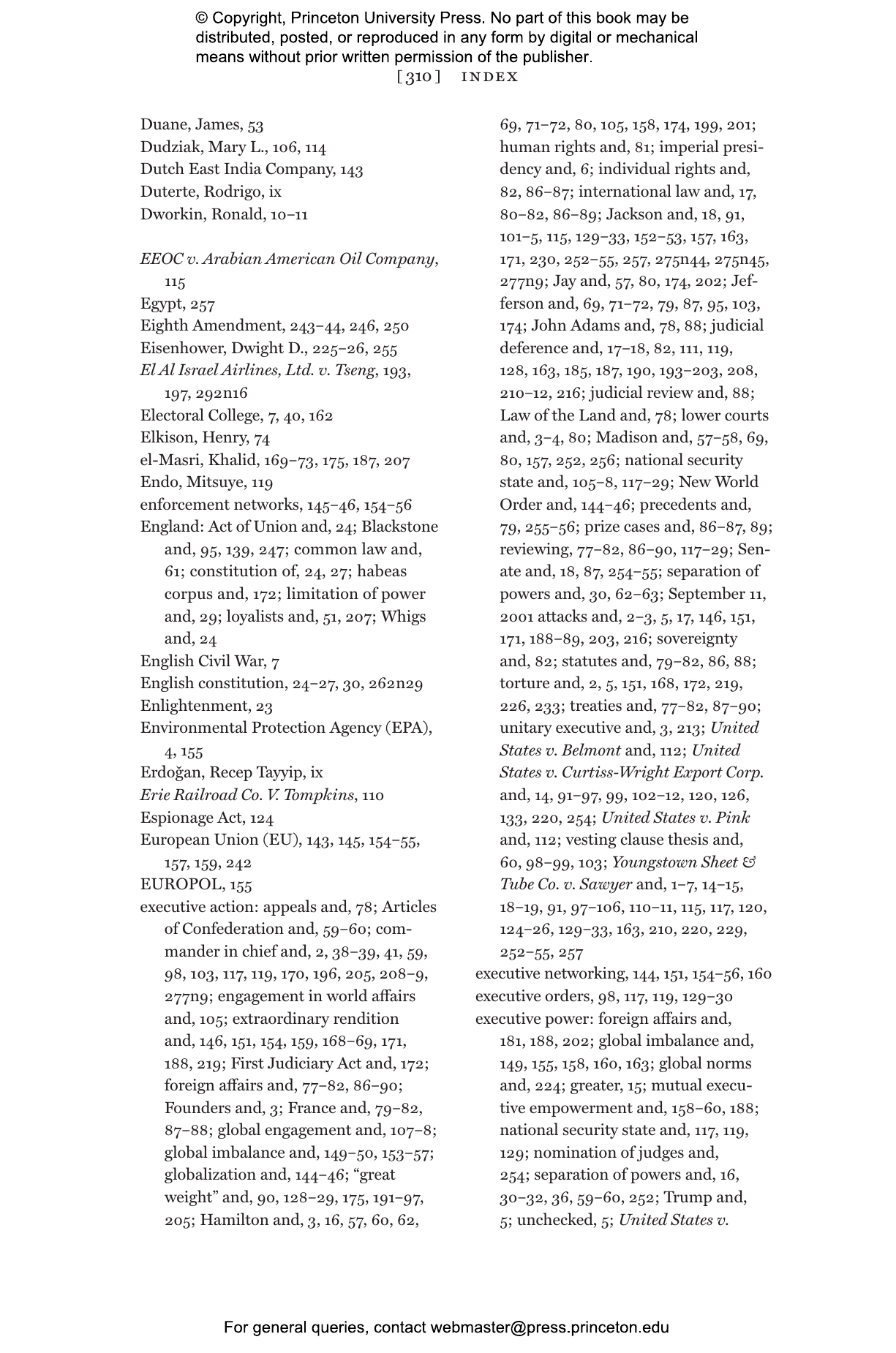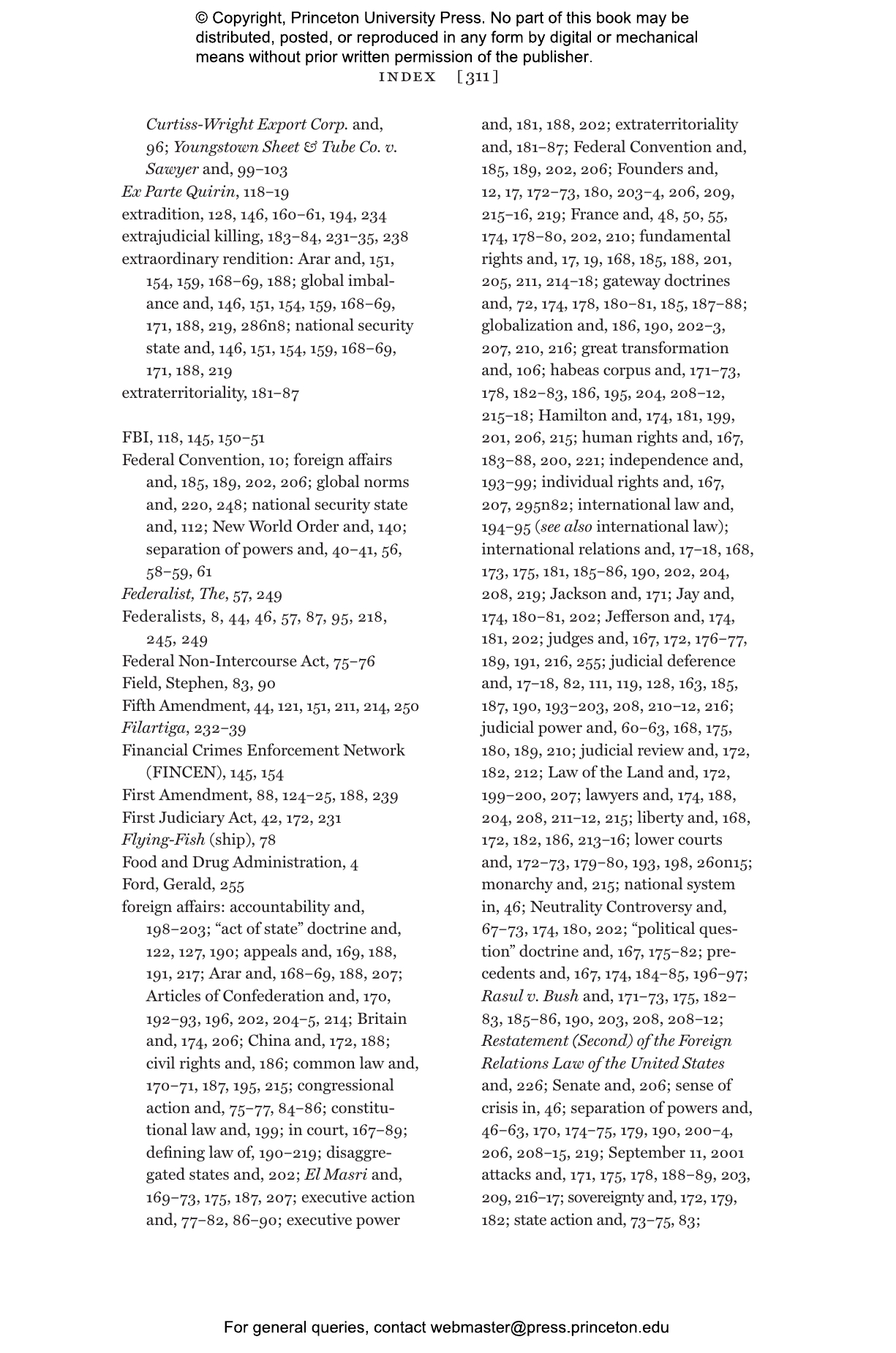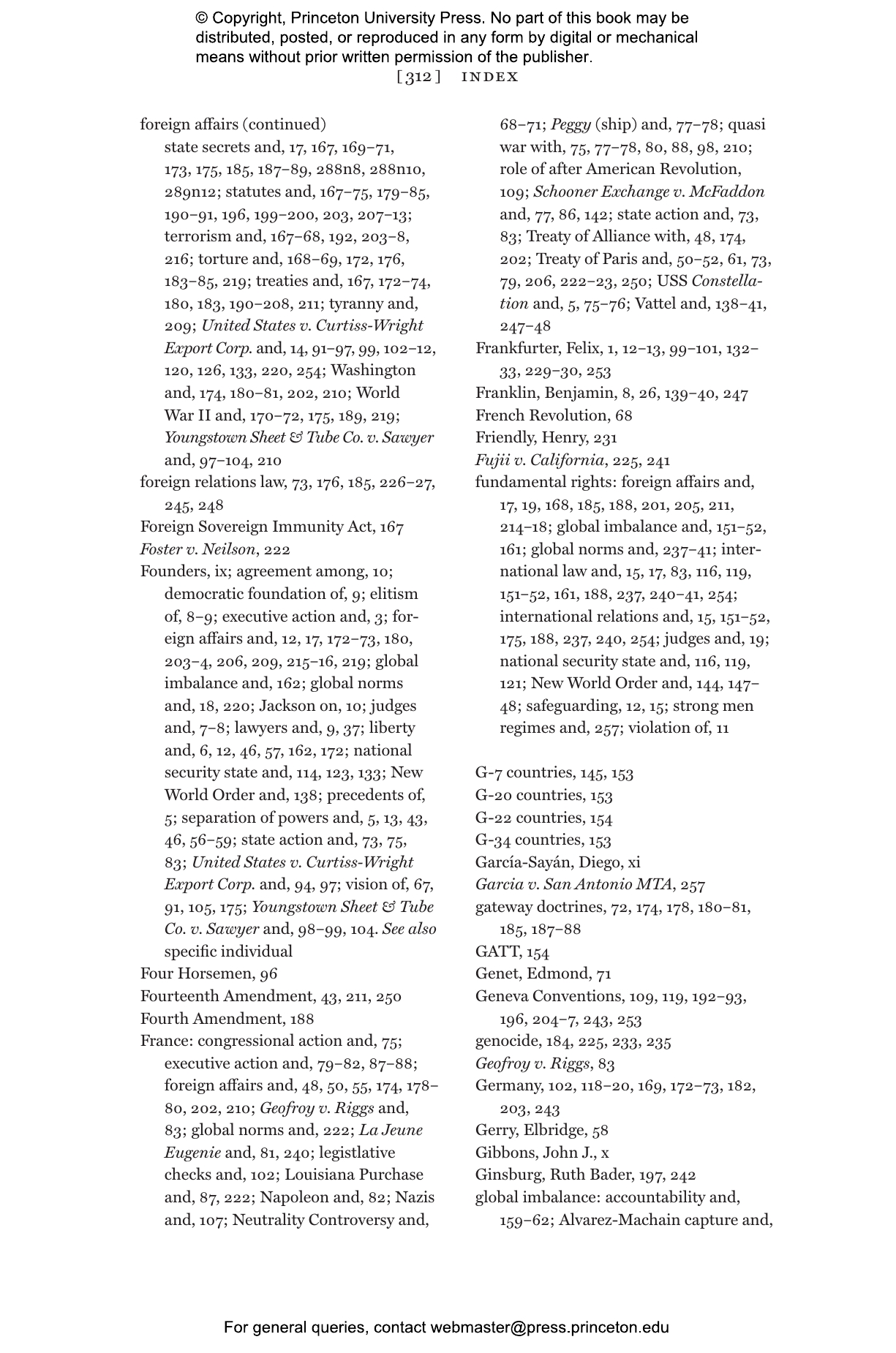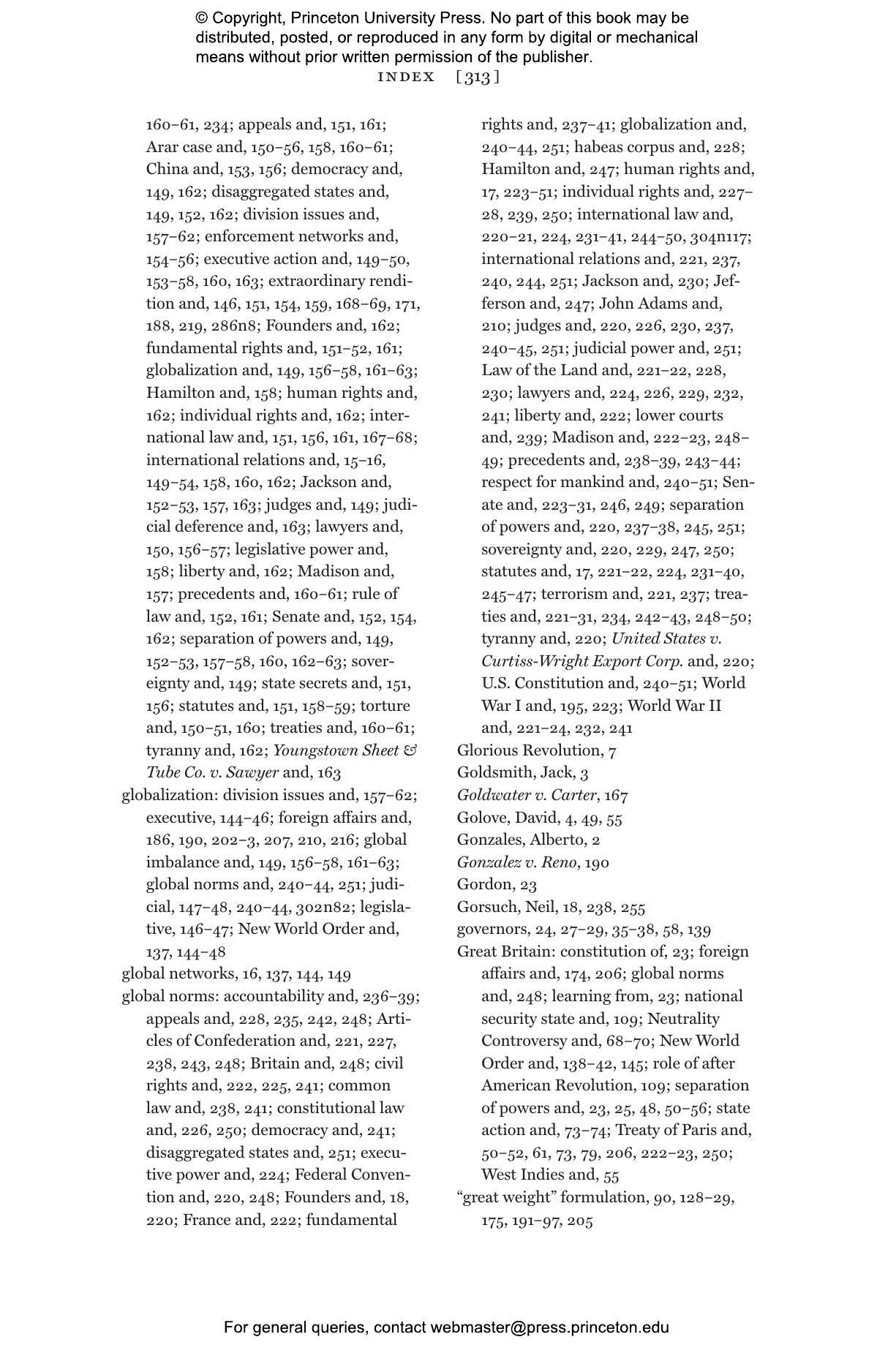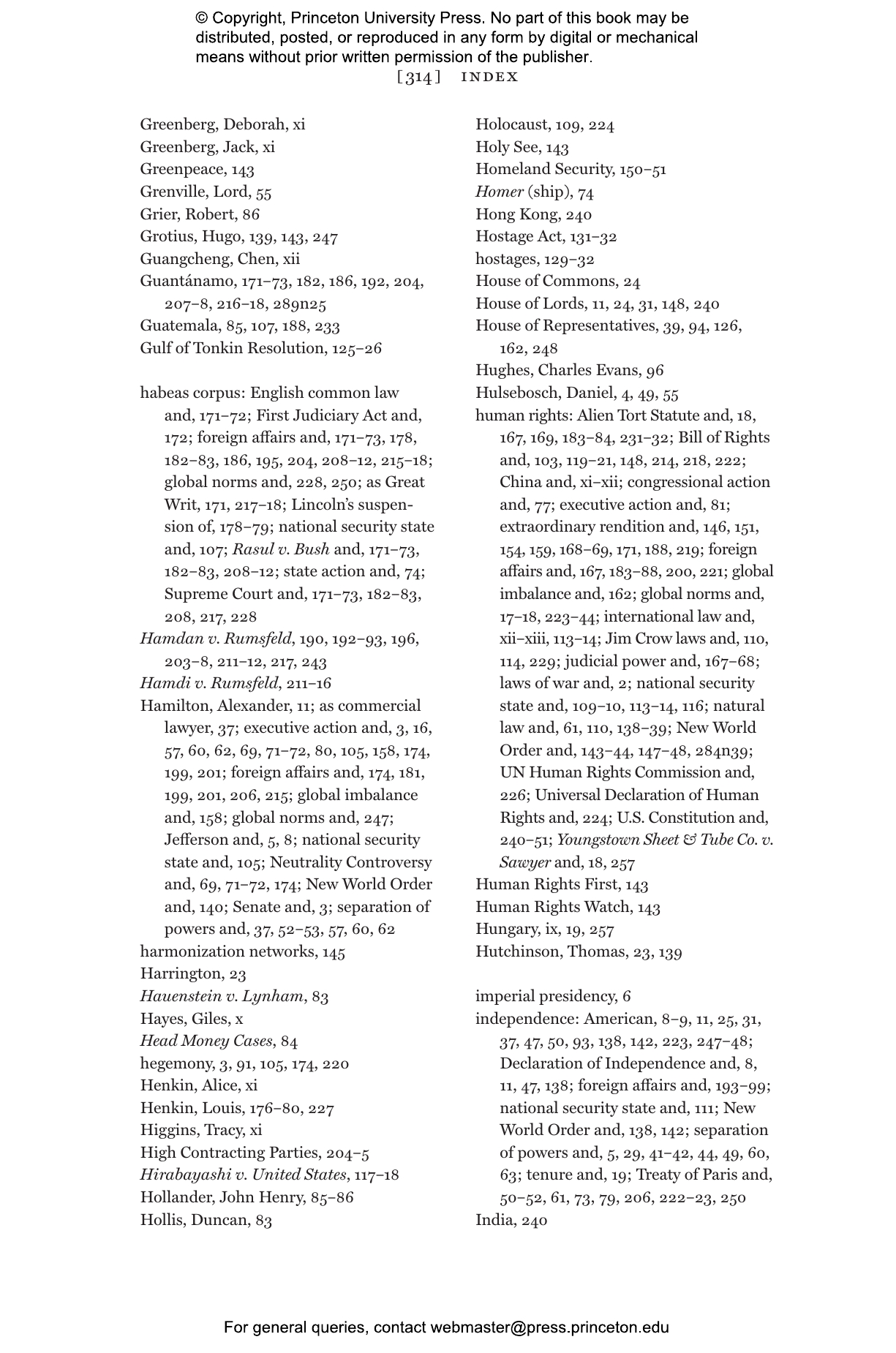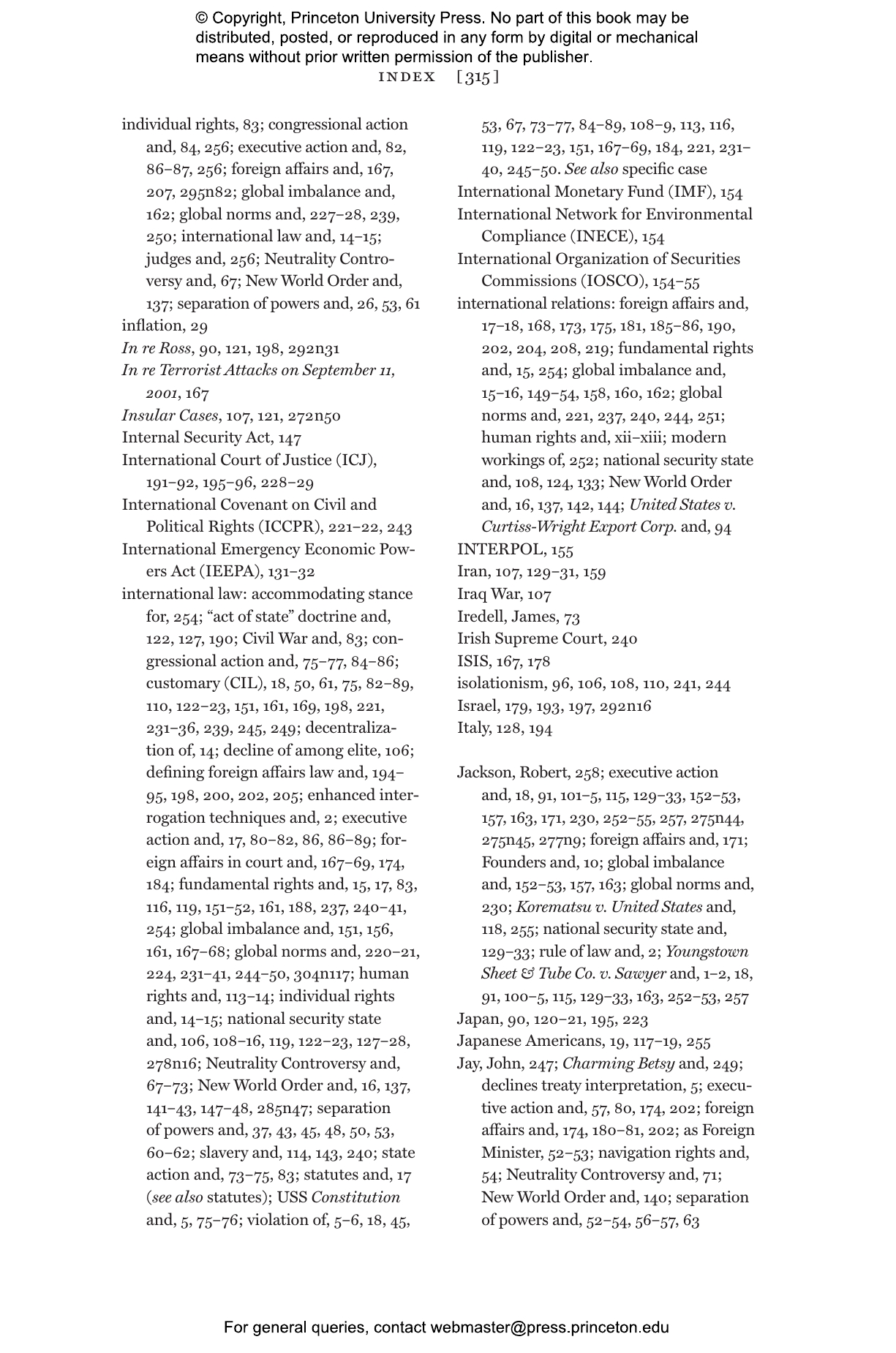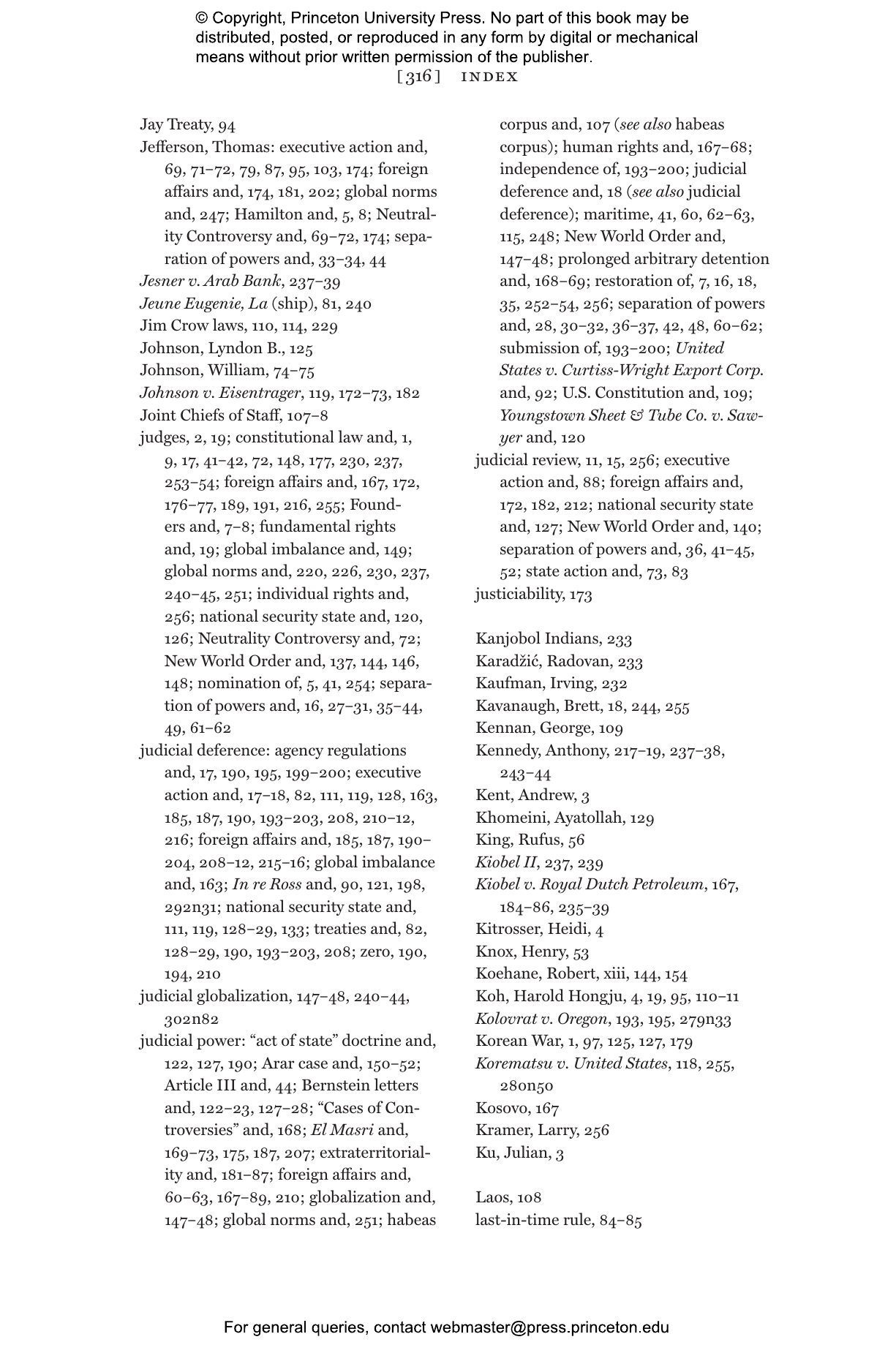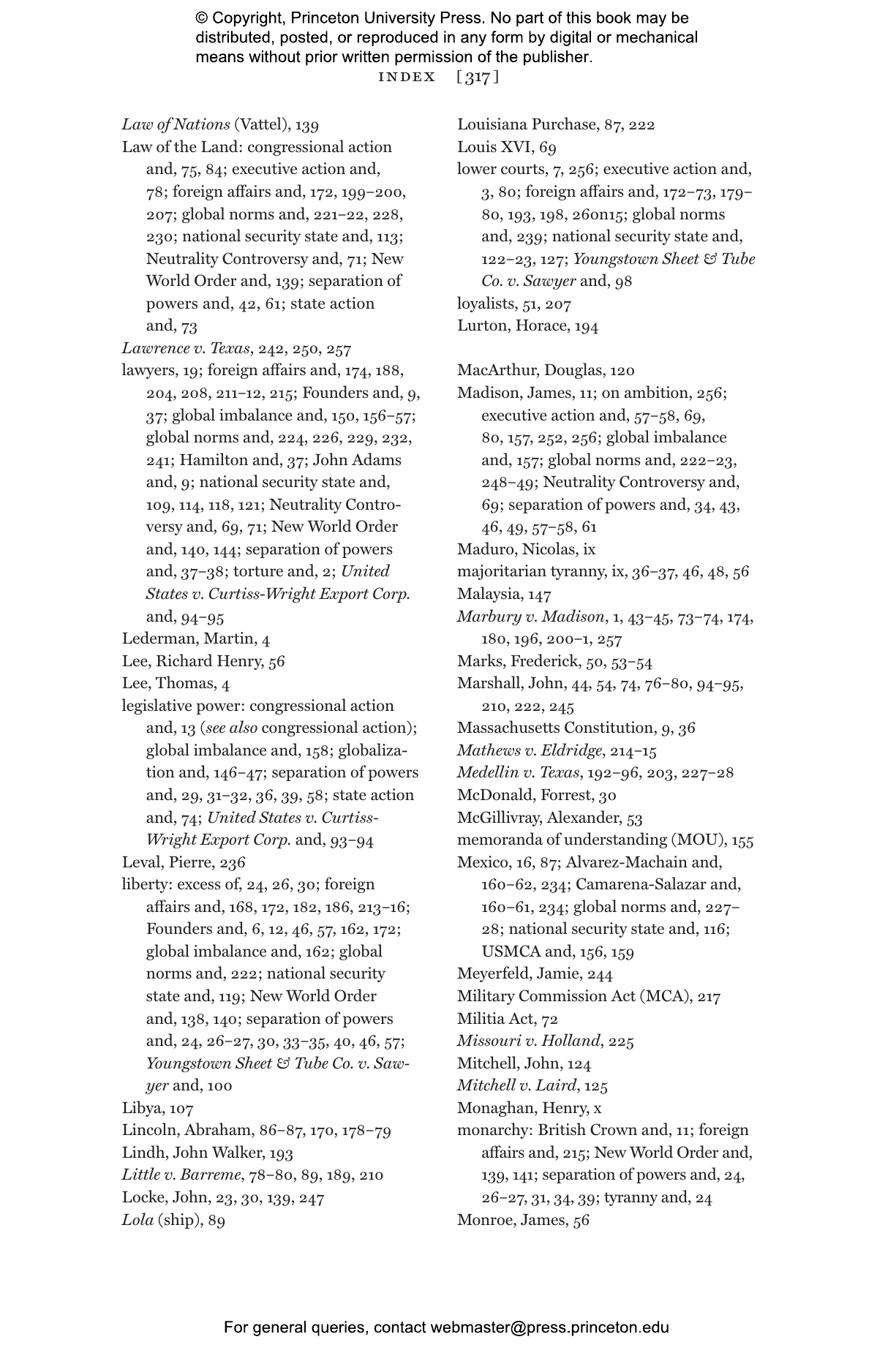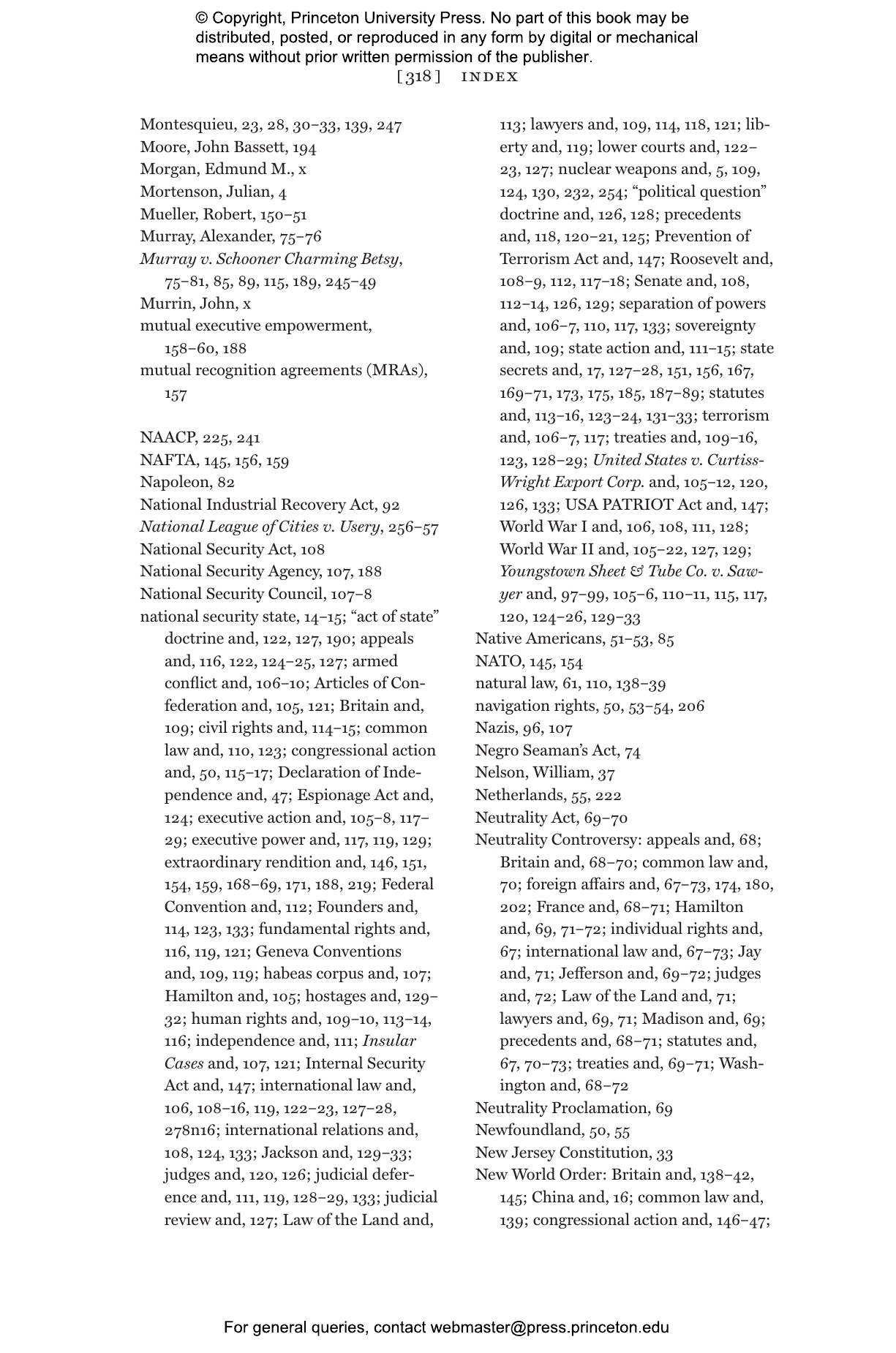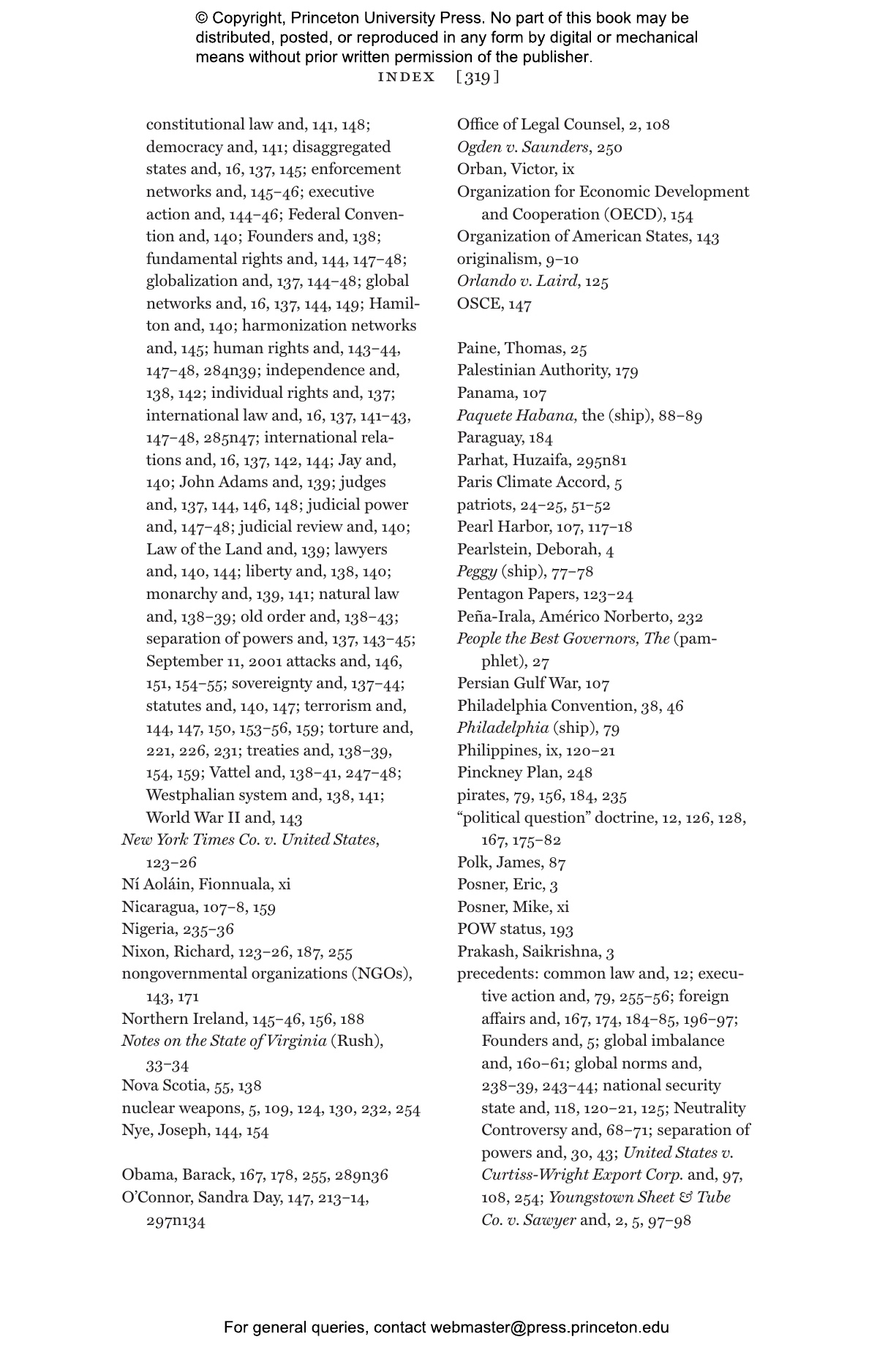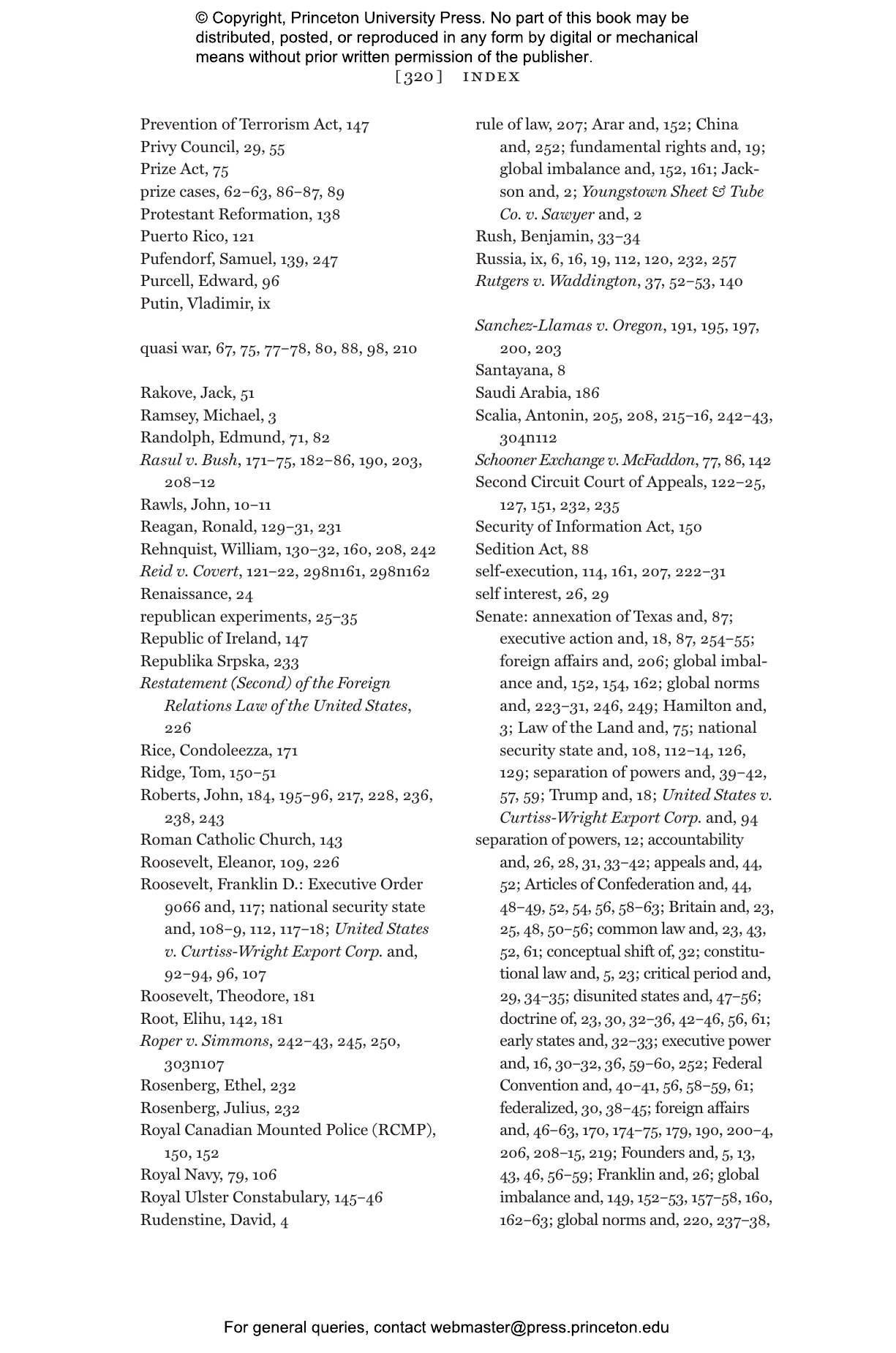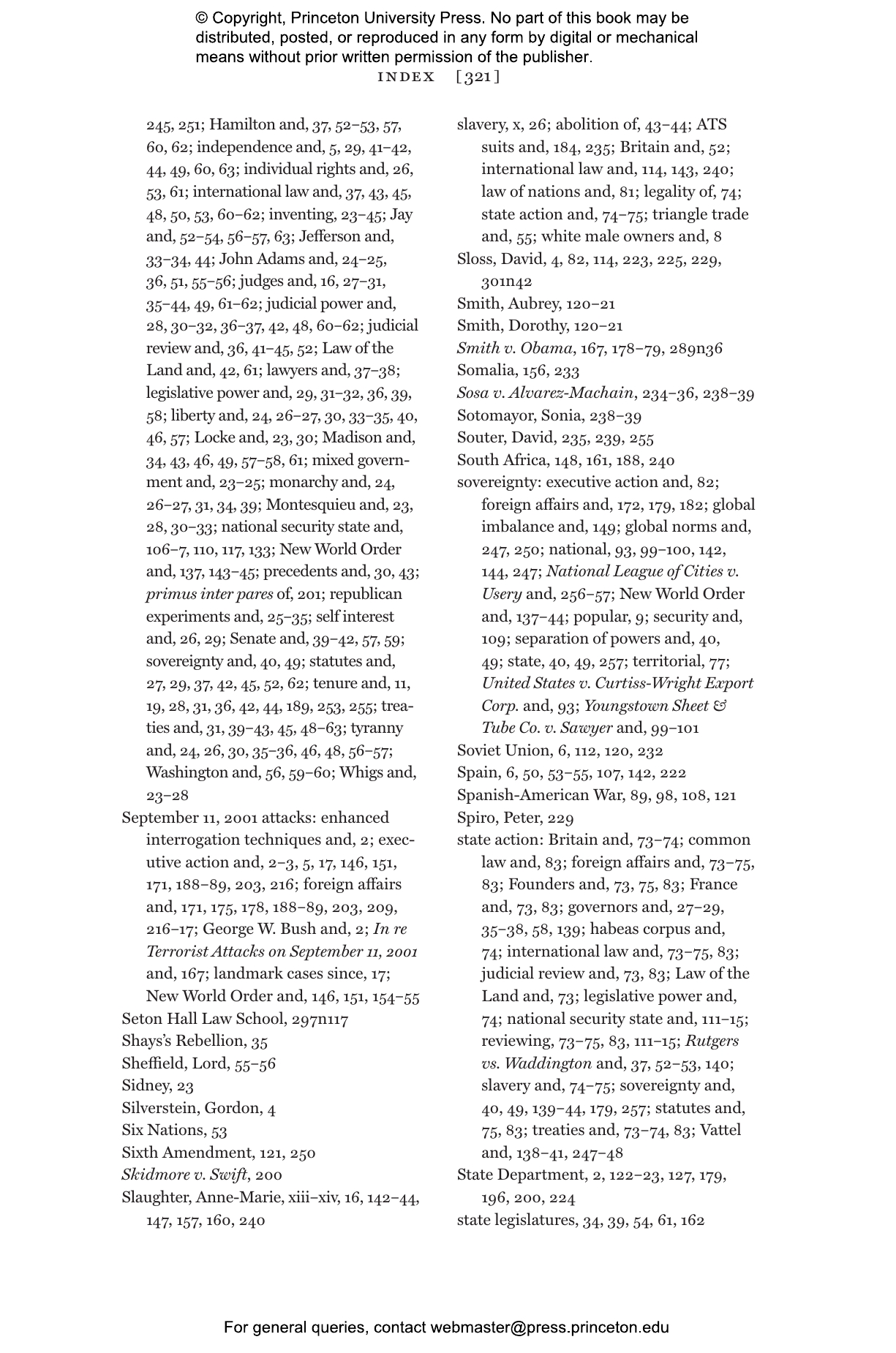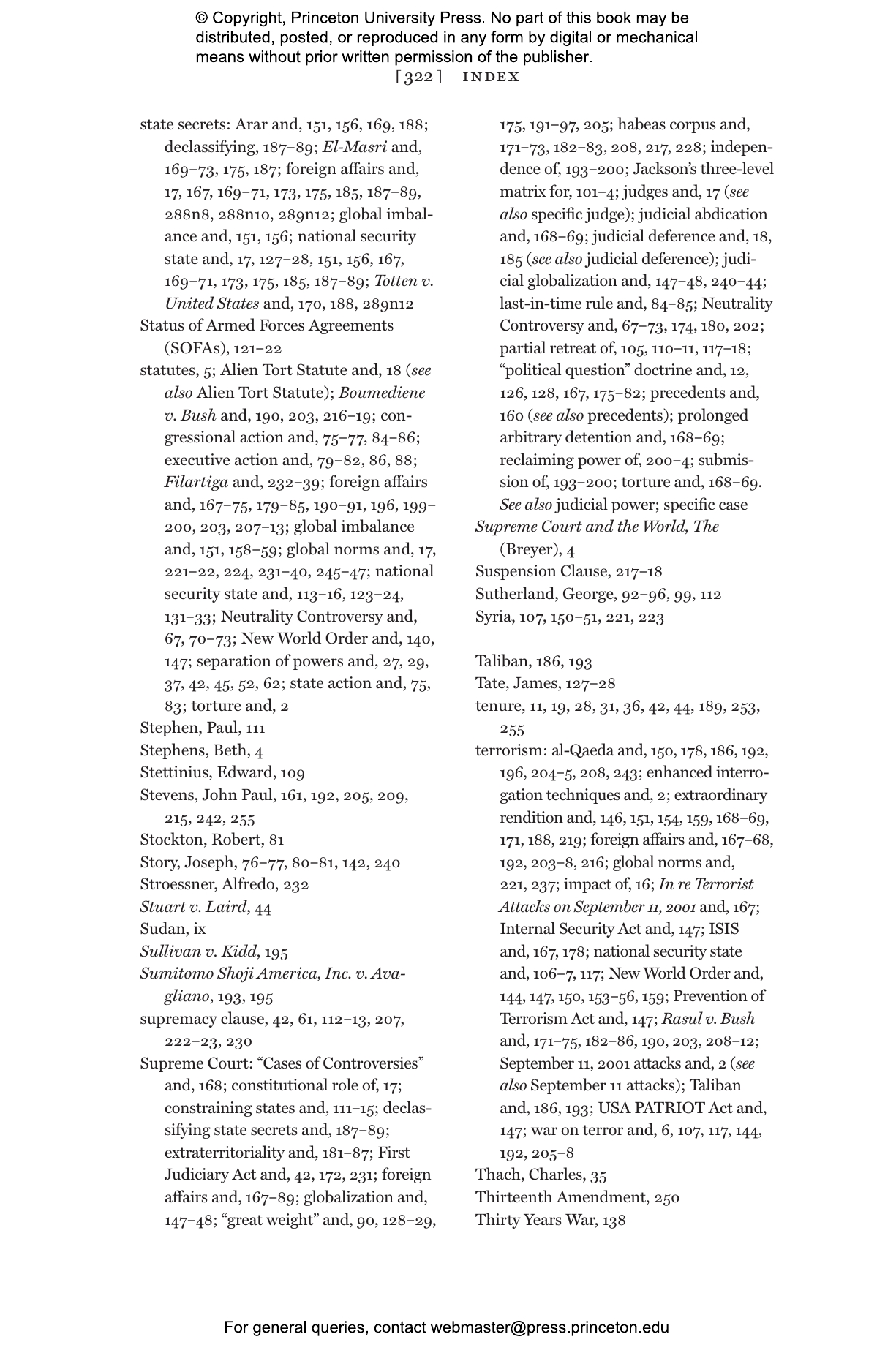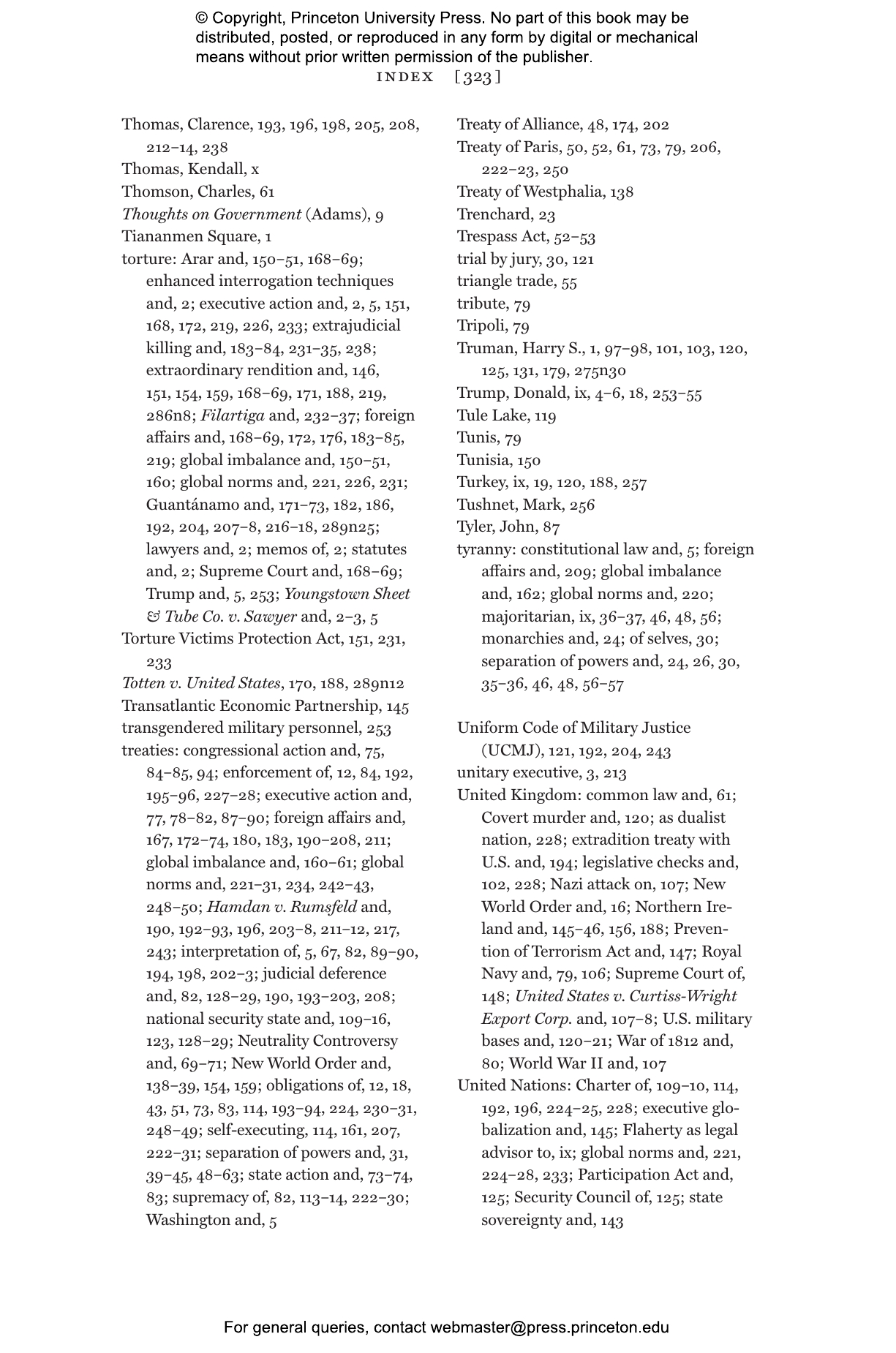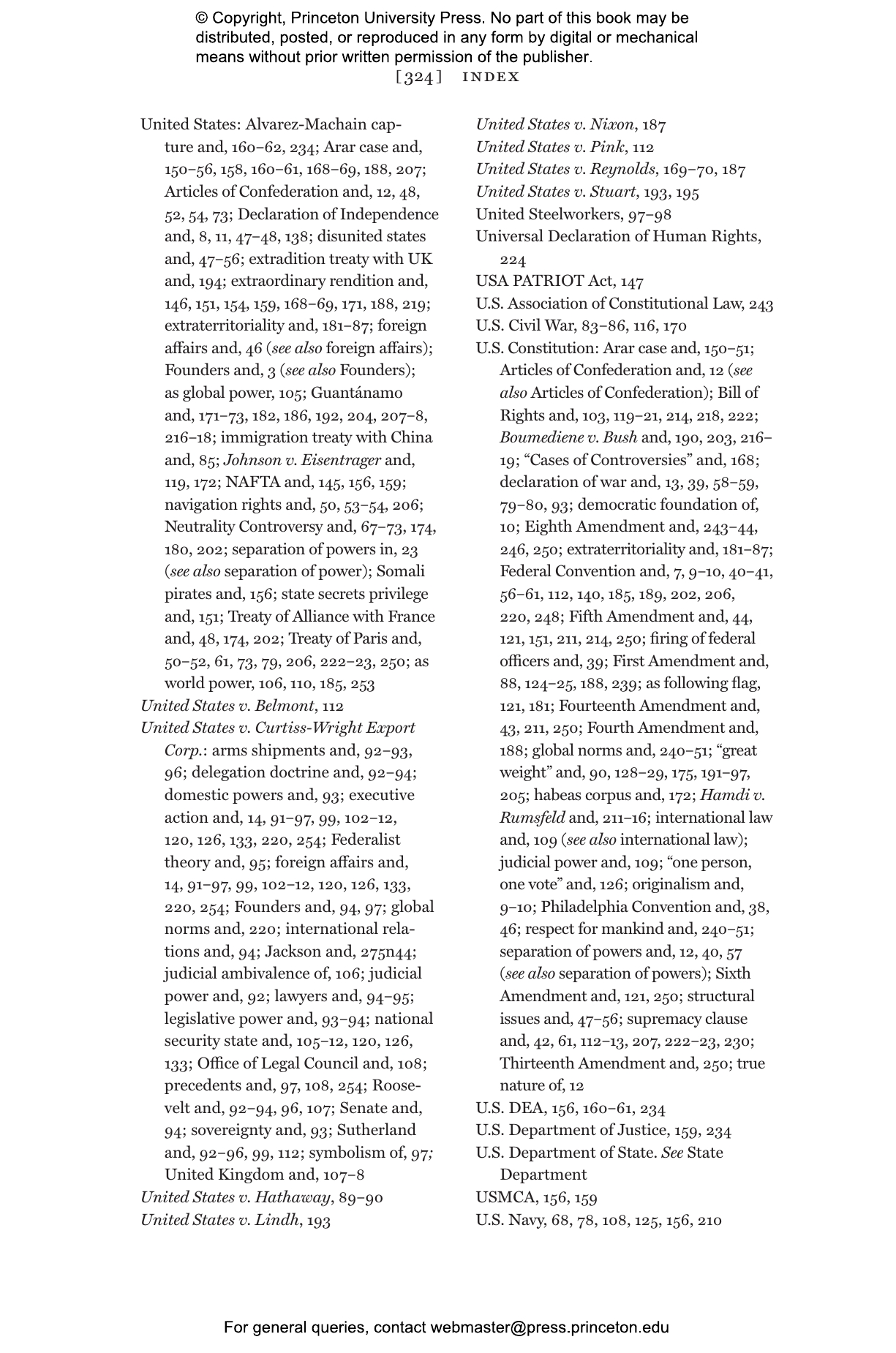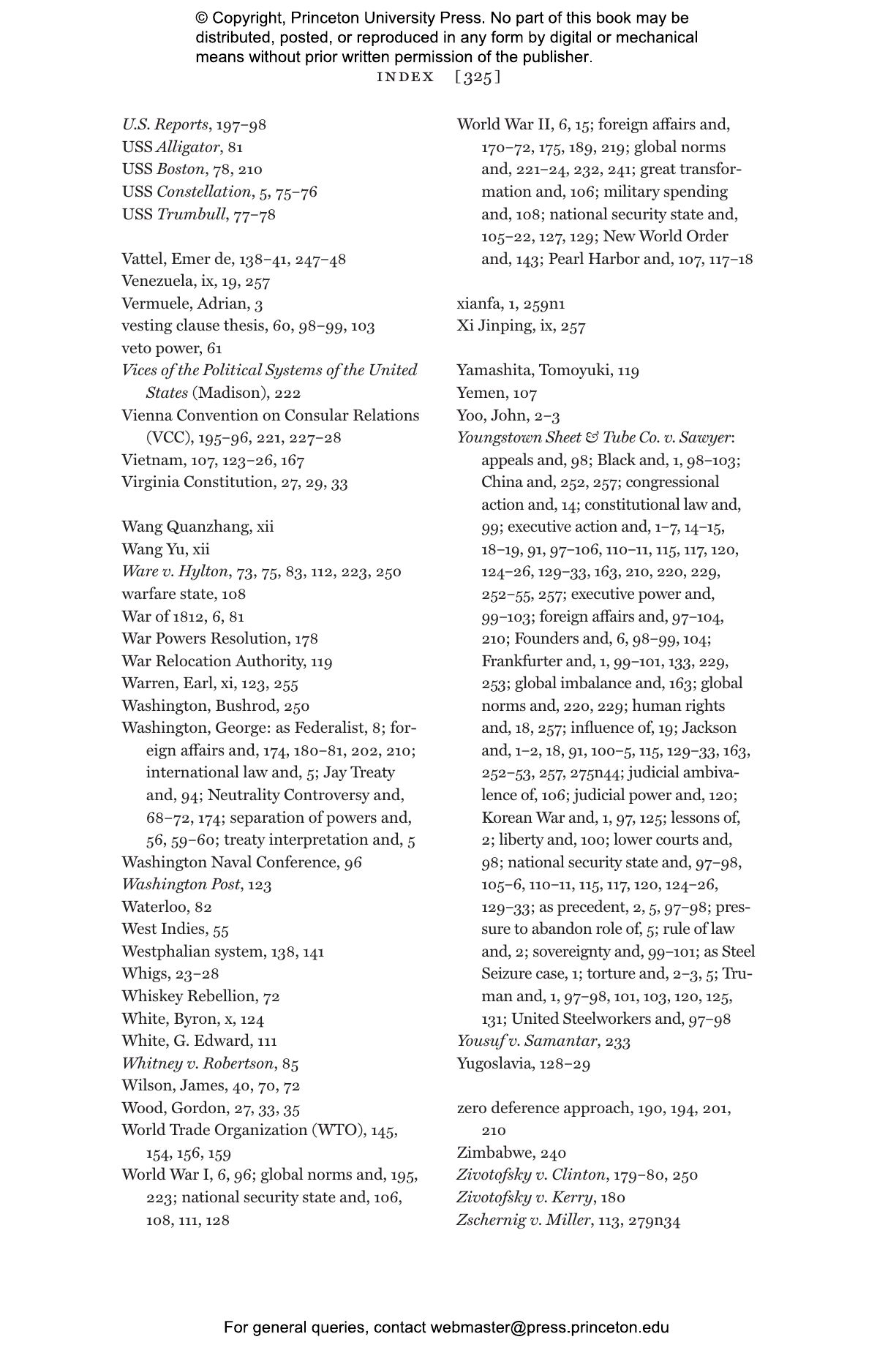In the past several decades, there has been a growing chorus of voices contending that the Supreme Court and federal judiciary should stay out of foreign affairs and leave the field to Congress and the president. Challenging this idea, Restoring the Global Judiciary argues instead for a robust judicial role in the conduct of U.S. foreign policy. With an innovative combination of constitutional history, international relations theory, and legal doctrine, Martin Flaherty demonstrates that the Supreme Court and federal judiciary have the power and duty to apply the law without deference to the other branches.
Turning first to the founding of the nation, Flaherty shows that the Constitution’s original commitment to separation of powers was as strong in foreign as domestic matters, not least because the document shifted enormous authority to the new federal government. This initial conception eroded as the nation rose from fledgling state to superpower, fueling the growth of a dangerously formidable executive that today asserts near-plenary foreign affairs authority. Flaherty explores how modern international relations makes the commitment to balance among the branches of government all the more critical and he considers implications for modern controversies that the judiciary will continue to confront.
At a time when executive and legislative actions in the name of U.S. foreign policy are only increasing, Restoring the Global Judiciary makes the case for a zealous judicial defense of fundamental rights involving global affairs.
Martin S. Flaherty is the Leitner Family Professor of International Human Rights Law and founding codirector of the Leitner Center for International Law and Justice at Fordham Law School. He is also a longtime visiting professor at the Woodrow Wilson School of Public and International Affairs at Princeton University. He lives in New York City. Twitter @MFlaherty17
"Flaherty laments the executive branch’s over-accumulation of power, but instead focuses on the diminution of federal judicial power in foreign affairs. In his new book, Flaherty convincingly argues that this trend is not only contrary to the intent of the Constitution’s framers, but it also encroaches on the role federal courts played in foreign affairs during the first century of the republic."—Jeffrey M. Winn, New York Law Journal
"Clearly, Flaherty’s study has significantly contributed to a growing body of work evaluating the American judiciary’s legacy associated with foreign policy."—Samuel Hoff, International Social Science Review
"In Restoring the Global Judiciary, Flaherty skillfully weaves together many strands of historical, legal, and empirical argument to demonstrate that judges must check and balance executive power just as much in foreign as in domestic affairs. The alternative is a global twilight zone in which individuals have no recourse against national governments. His proposals for the evolution of American law are bold and even shocking in the current environment, but deeply necessary."—Anne-Marie Slaughter, CEO of New America
"A timely and engaging call for a more robust U.S. judicial role in foreign affairs, Restoring the Global Judiciary is distinguished by its deep understanding of the constitutional Founders’ perspective concerning the separation of powers and the importance of constitutional custom in filling out the Founders’ blueprint. Offering a survey of American foreign relations law and a critique of the Supreme Court’s approach to this law, this enjoyable and informative read will spur much-needed debate and discussion."—Curtis Bradley, Duke University School of Law
“In this timely book, Martin Flaherty addresses a historic problem that has renewed urgency: whether the Supreme Court can constrain the president in world affairs. Restoring the Global Judiciary is compelling, wide-ranging, accessible, and important."—Mary L. Dudziak, author of War Time: An Idea, Its History, Its Consequences
"Restoring the Global Judiciary is a major work. It is the best history of the Supreme Court and foreign affairs law that I know of, as well as the best integration of international relations theory and constitutional jurisprudence. This book is worth the price of admission and made me a whole lot smarter." —Mark A. Graber, author of A New Introduction to American Constitutionalism
